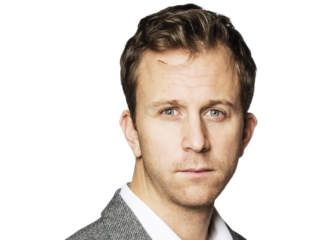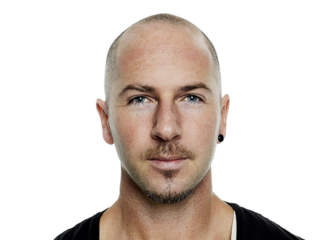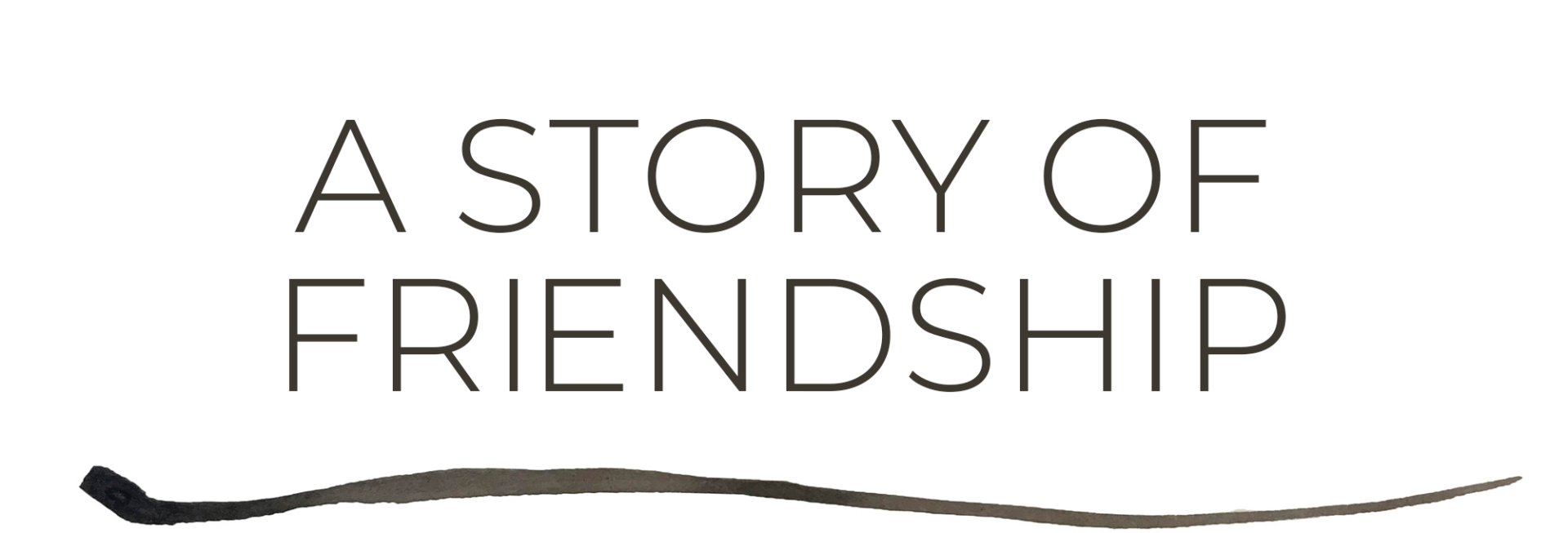

Pekka and Matte
A story of friendship
If the ticking of the clock is the sound of time passing, then the silence in-between
is the voice of loneliness.
It holds the seconds he now needs to fill.
This is a story about friendship and how it comes to an end.


ay and night meet over Gamla Stan, when the darkness rolls in from the waters of the Baltic Sea. It’s a classic Stockholm view, especially striking in September before autumn hits and buries the whole city in grey. The blackness that comes tumbling in from the east and the sunlight that quietly fades away over Lake Mälaren.
On one of those nights, a subway train stops on the Central Bridge, just before the tracks disappear under Södermalm. Two weeks have passed since the national election. Sweden is fumbling. Years of booming economy and economic growth are believed to have peaked. This is the turning point, everyone knows it.
The Russian threat and the Trump threat. War in Syria, war in Yemen, and a trade war. A summer without rain.
With all the things demanding space in the newspapers this fall, the story of two homeless men isn’t the candidate that stands out the most. That’s a feeling we can’t really shake. Yet we feel determined to tell it. We were with them for so long. Year after year.
Pekka, who died a year ago, and Matte who is left behind, alone. Their kinship was with the invisible, but in their unadorned world they were celebrities. Pekka: the entertainer with the gift of the gab. Matte: his Sancho Panza.
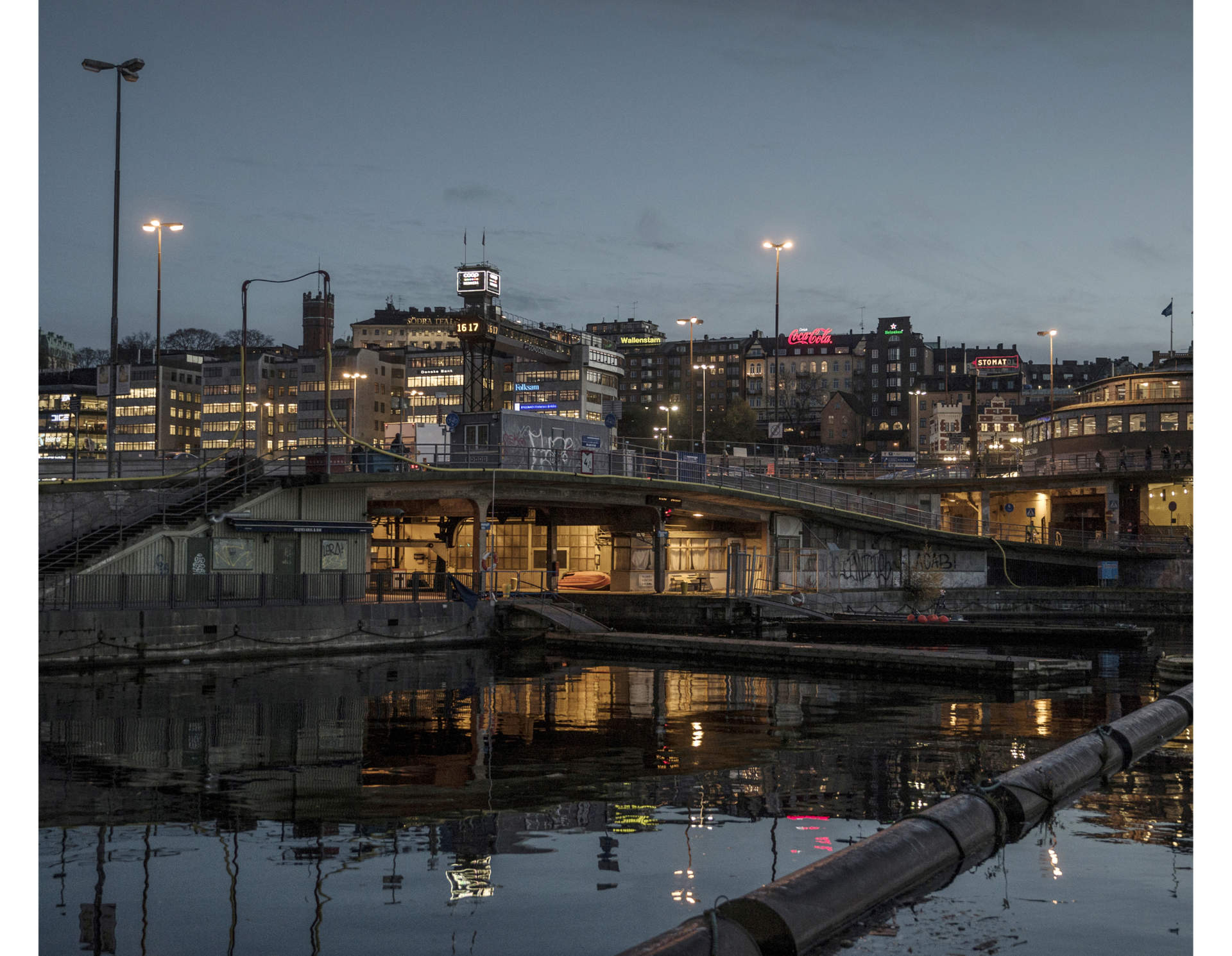
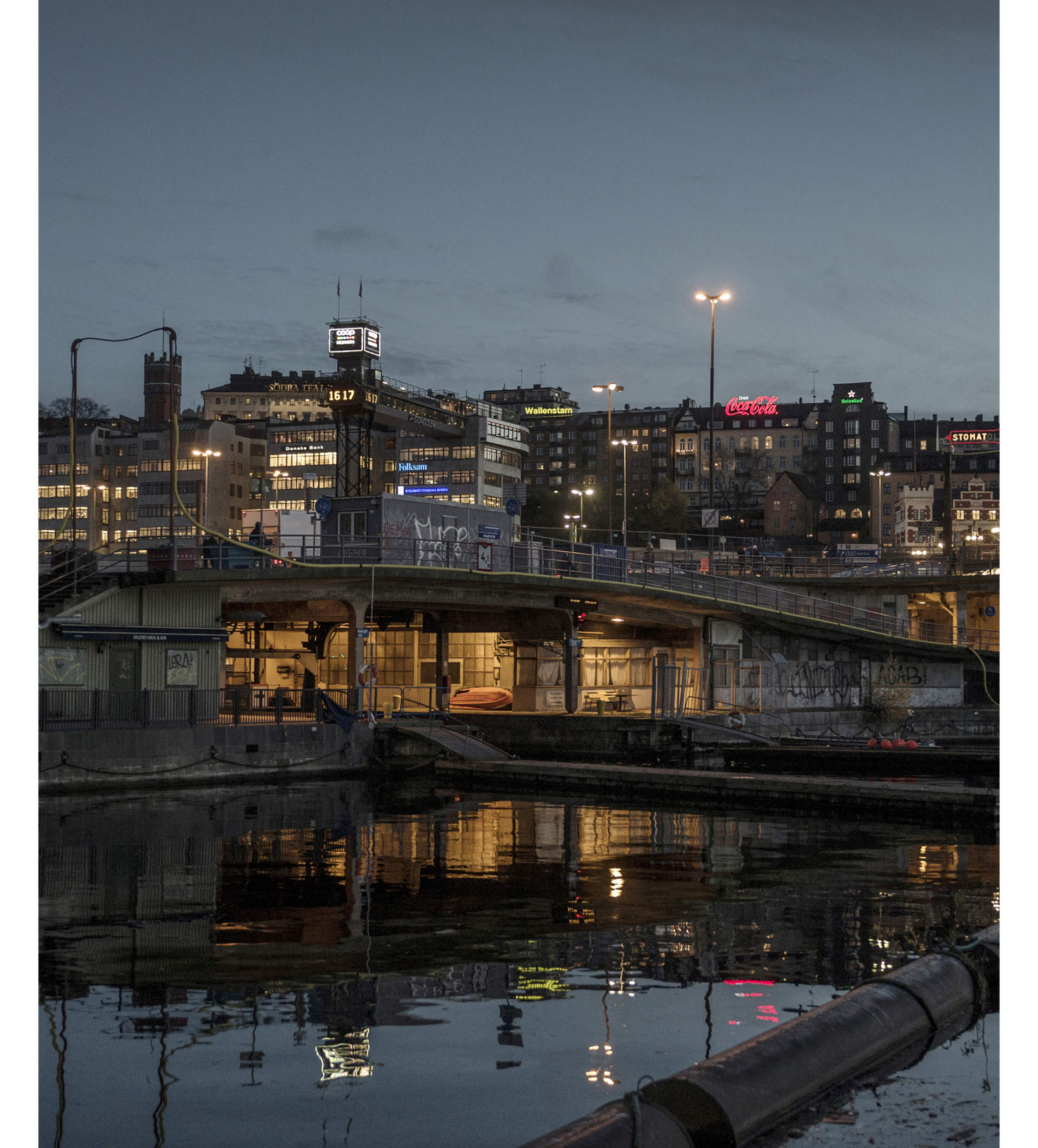
A home below it all. Made of garbage cans, mattresses, and a tarp. “The best years”.
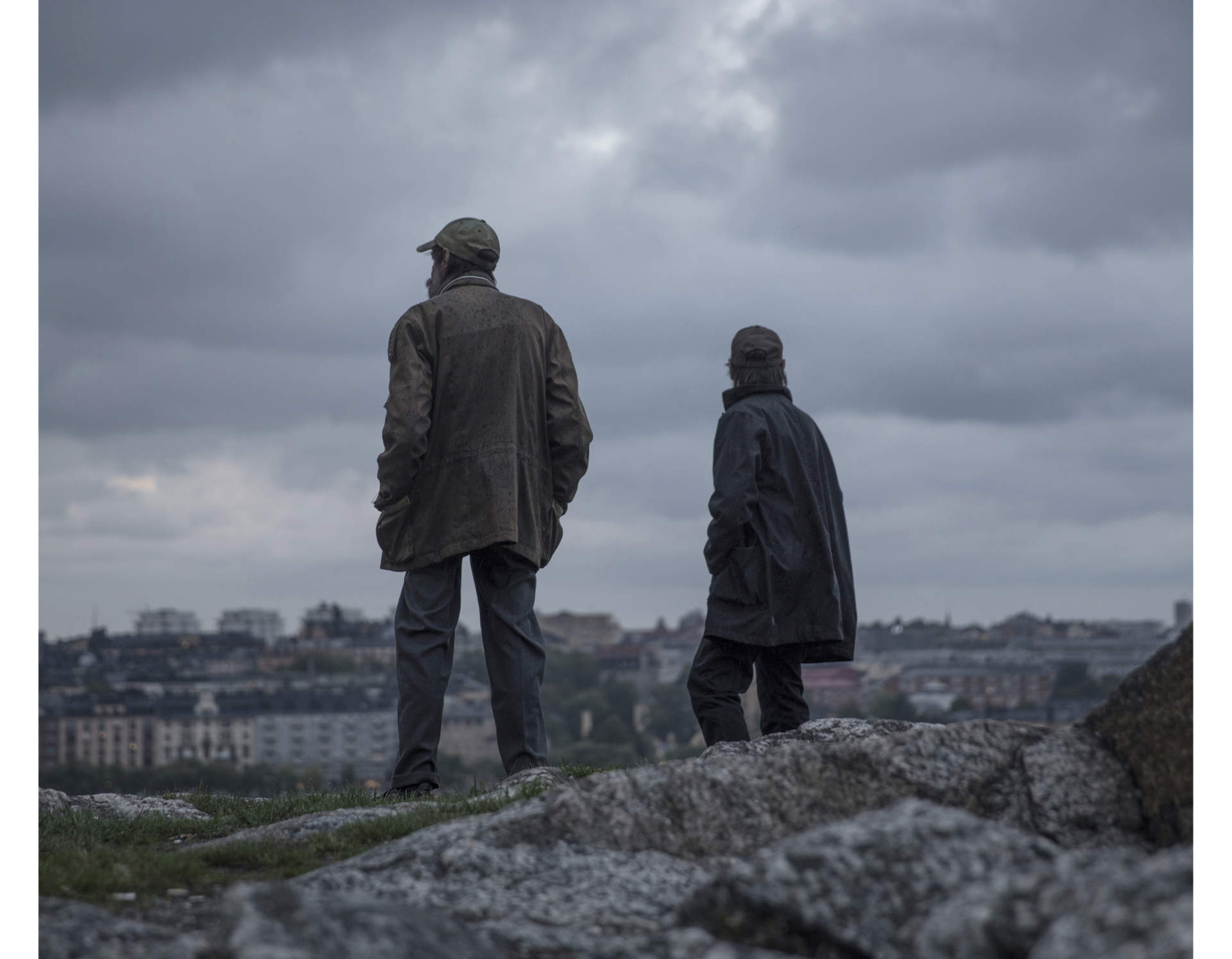

In the middle of Stockholm, but always on the sidelines. Pekka and Matte could never live up to the obligations that society demanded. Life on the streets however, was something they learned inside out.
There it stands, the subway car, in the heart of Stockholm. The view that meets the people gazing out to the left hand side is a giant hole in the concrete, like a massive grey jaw. The outline of two yellow building cranes rises towards the sky and signals transition. Or transience.
Right over there, 35 meters below the cranes, is where Pekka and Matte lived, year after year. They called themselves brothers. And so they should, if brotherhood means sharing everything, even when there’s nothing to share.
Two men with the habit of adding new holes in their belts as life eroded their bodies. Two friends who made their existence manageable through each other.
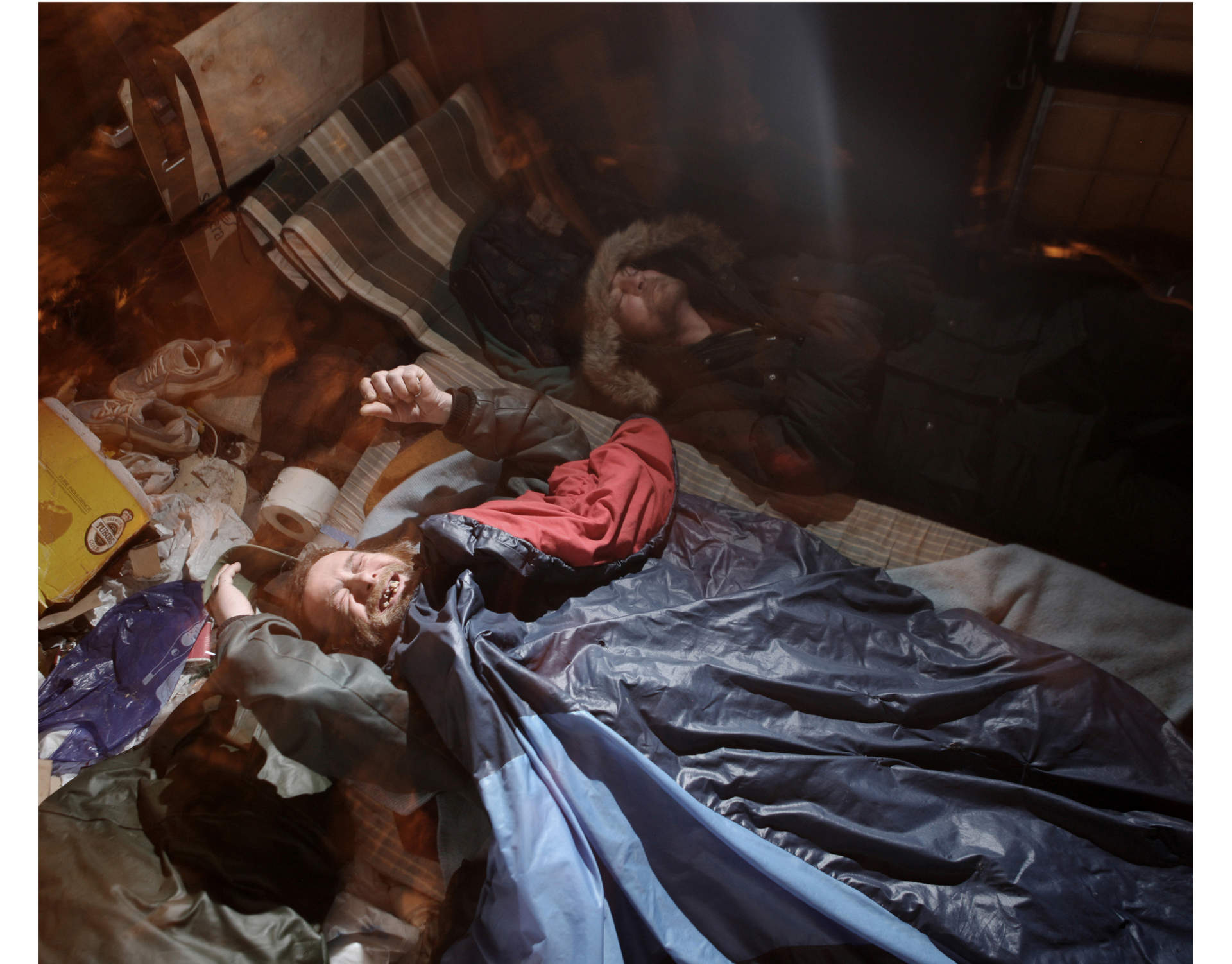
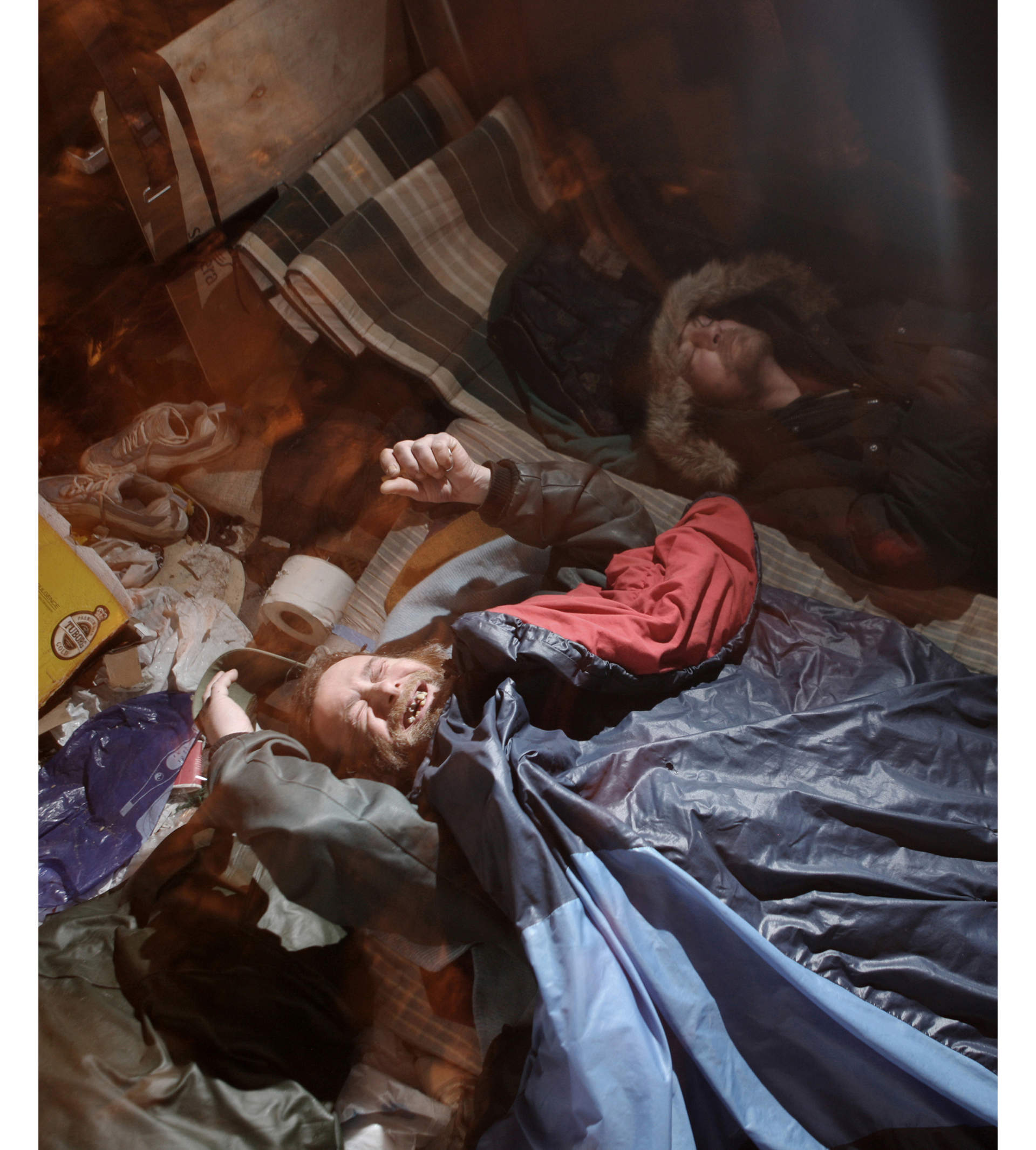
”If a war broke out in Sweden, it would be us homeless people who would have the best shot at surviving. We already know how to live this way.”
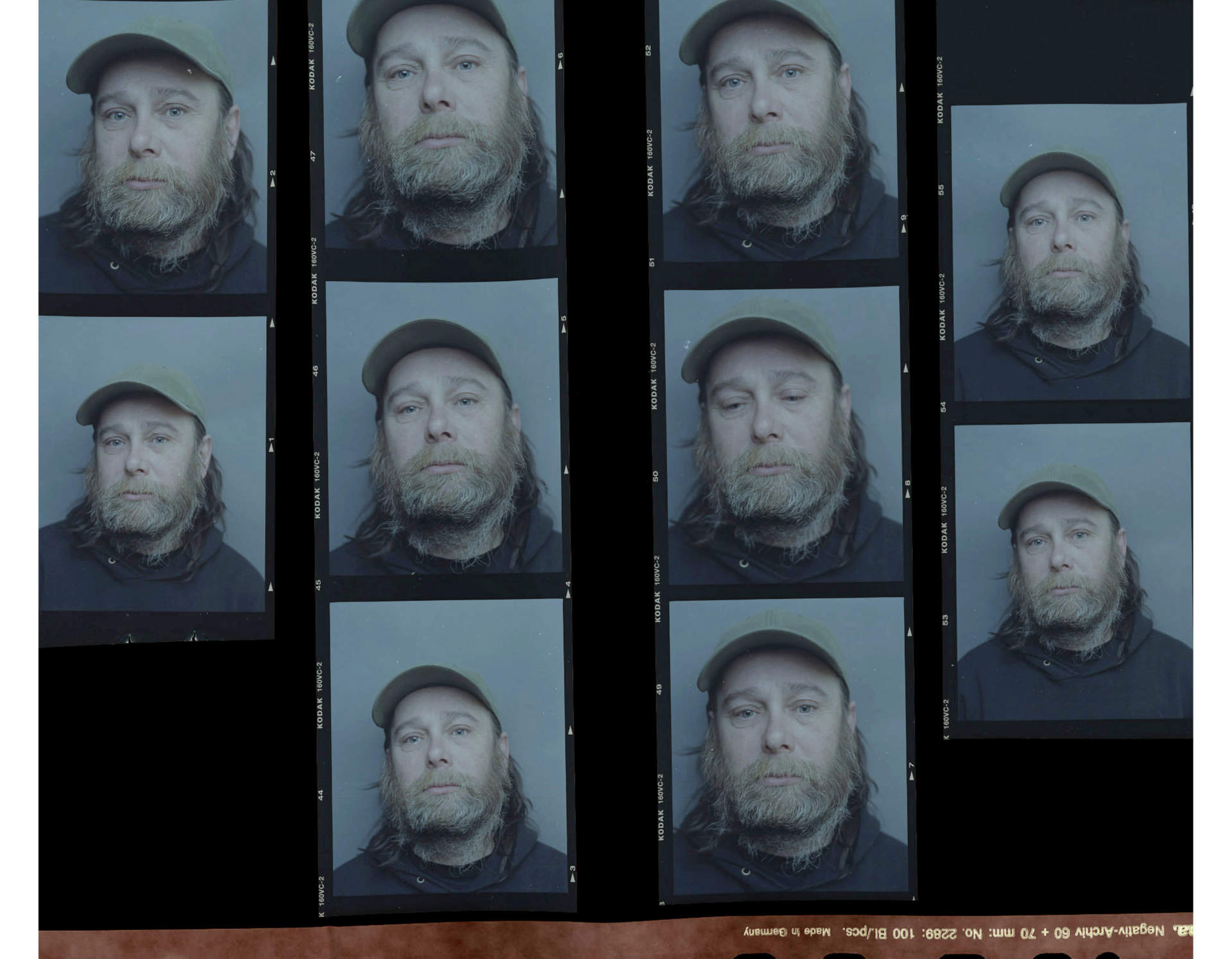
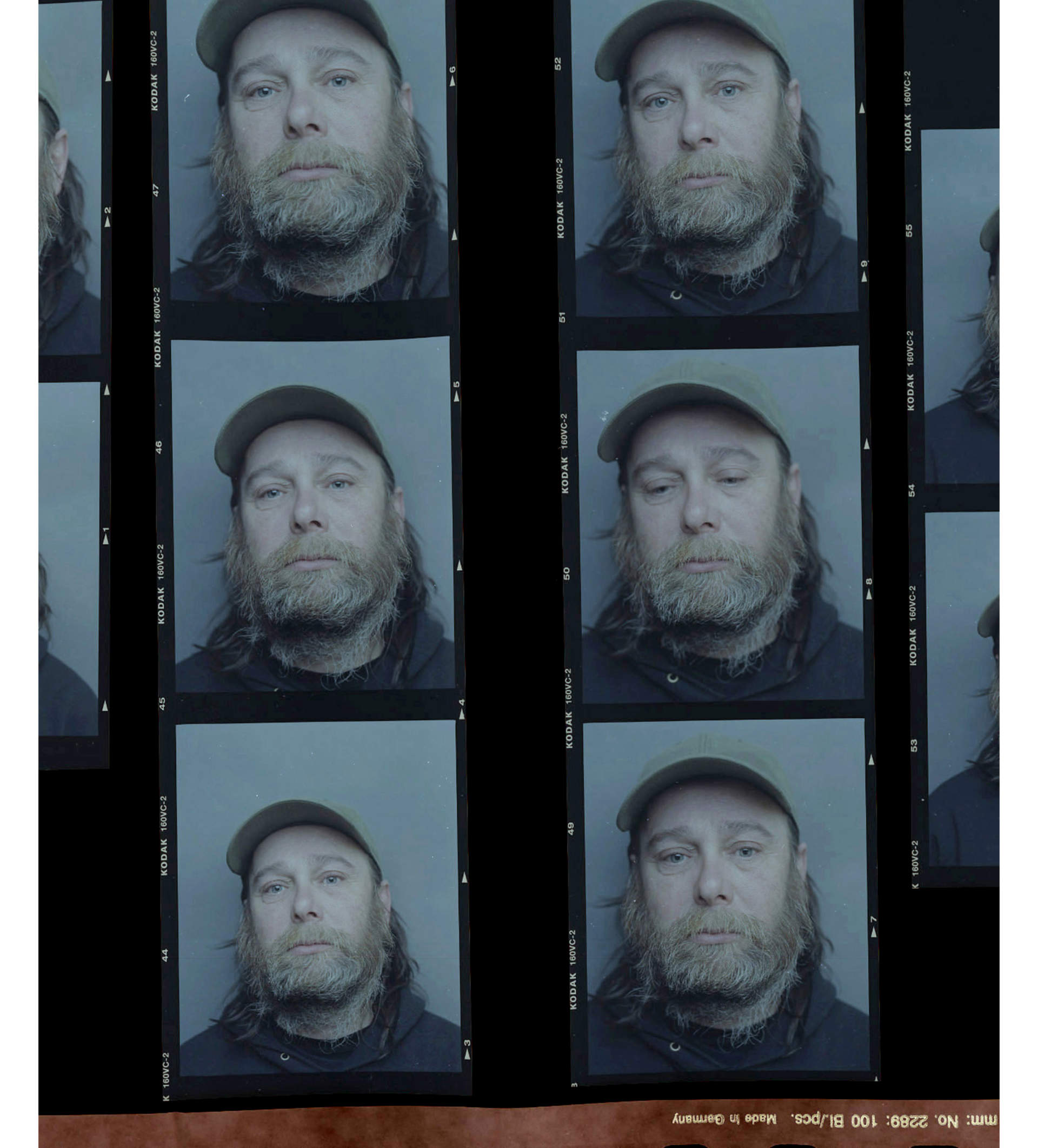




In 1997 Pekka appeared in this newspaper Aftonbladet, for the first time. Jan Helin, a reporter at the time, later editor-in-chief, and now the content manager at SVT, Sweden’s national public TV broadcaster, lived among and portrayed Stockholm’s homeless for a week.
Helin wrote about Pekka:
”He’s an original, a street recluse with unexpected insights and stories. He looks and talks like a Jesus figure made up by some Hollywood director to tell a few truths. He’s the only one who’s in a really good mood out of the people we meet during our nights on the streets.”
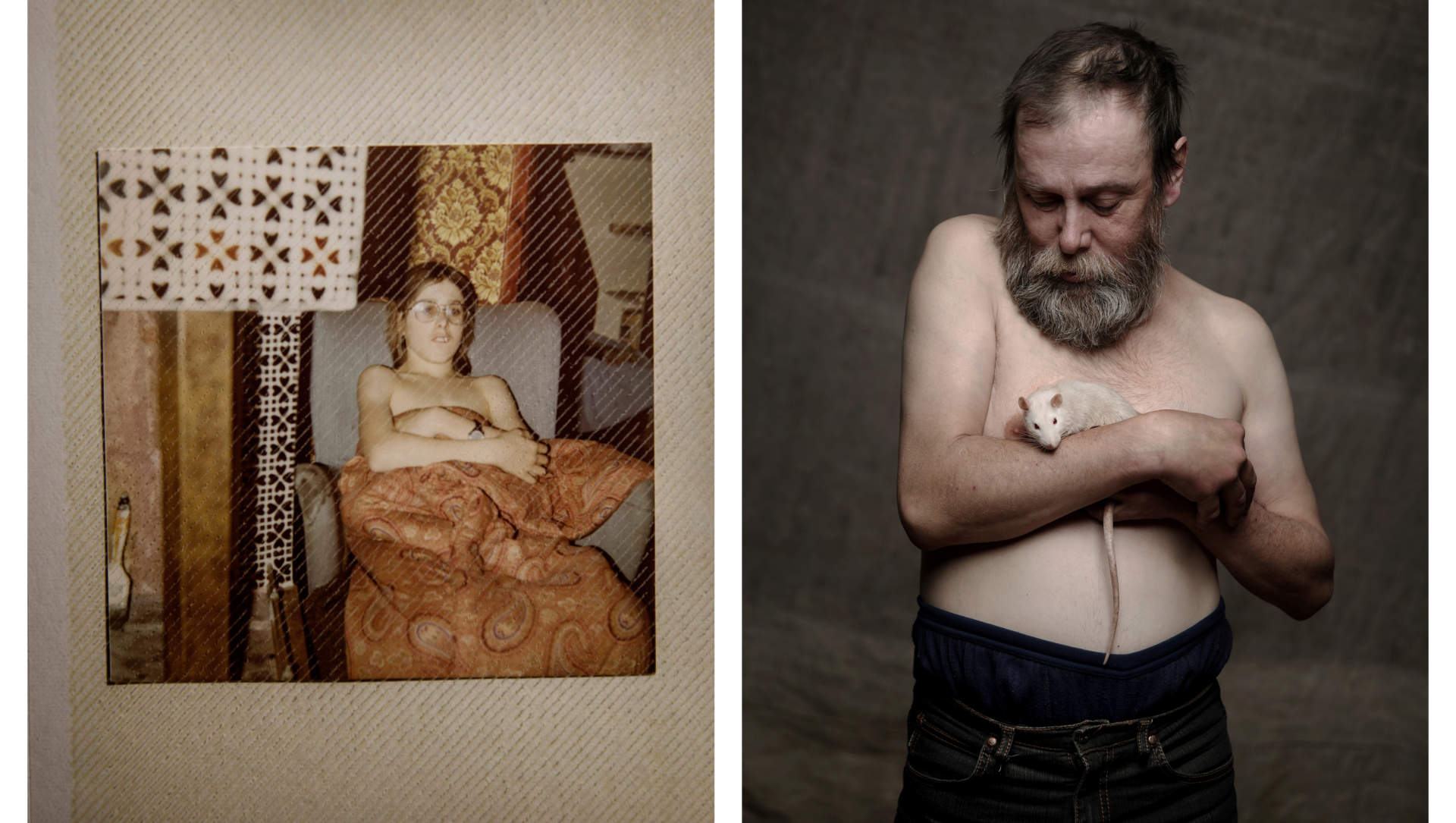

His name was Jouko Jokinen, but came to call himself Pekka Bajen, a reference to the Swedish football club. ”I have more in common with the rats than the people in this town”.
Pekka dropped his real name, Jouko Jokinen, somewhere around the turn of the millennium. Jouko had a story, a truth hidden away in a plastic folder in a cabin in Bergslagen and in documents deep down in the vaults of the city archive. Pekka Bajen on the other hand, existed only here and now. And that’s exactly how he wanted to live.
When he summed up his past it was done with precision, carefully stripped of all the spaces that could house a listener’s questions. He was a truck driver who broke away from society, who said ”fuck family life, responsibilities, and obligations”, and who instead built a home under the central junction of Slussen in Stockholm. A surviver in the harshest of environments, homeless of his own will and never shackled by the conventions of society.
It was a story of freedom and it was told with two purposes: To serve as a quick passage onto something else to talk about, and to obscure any glimpse into the other story. The one about a lonely underdog. A Finnish bastard with a home-sewn jacket. About the dad, the violence, the crimes, the convictions, the bouts with psychiatric institutions.
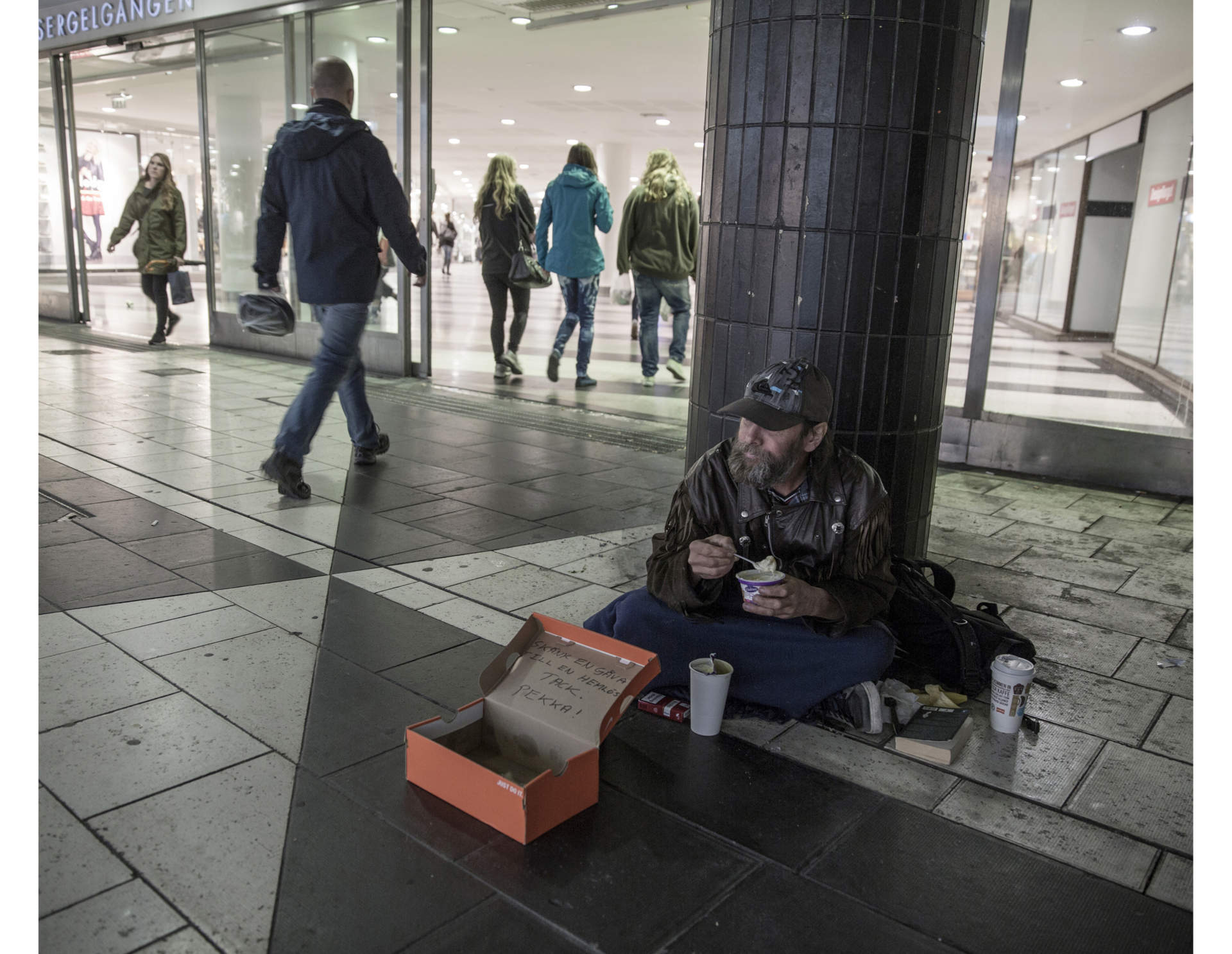

At knee height with the rest of us. A few kronor an hour. ”It’s always easier around Christmas, when people try a bit harder for kindness.”
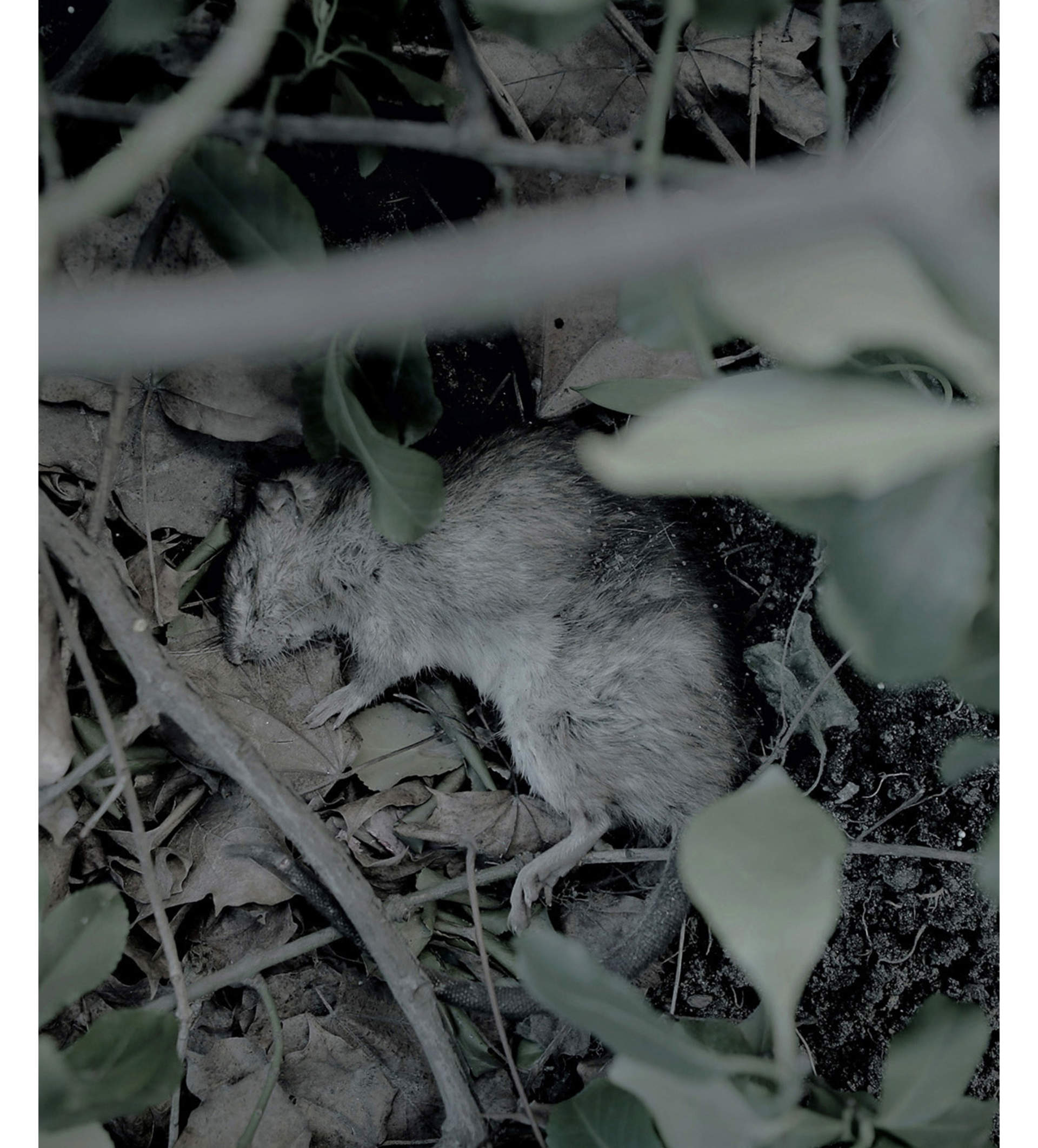



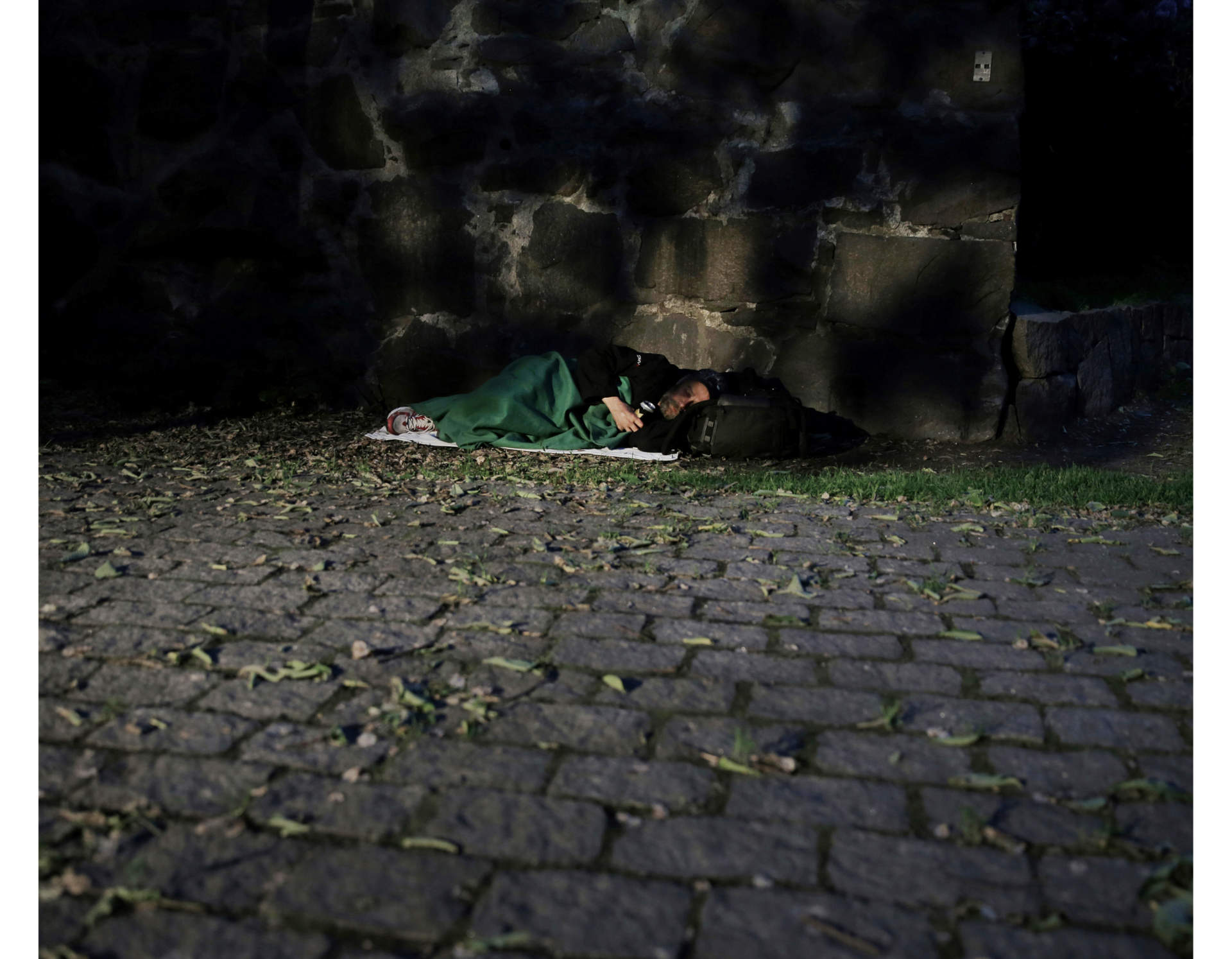

“Tomorrow is a new day.” Pekka goes to bed with his head on his belongings.




One point for an arm, two for a leg and three for a head. The trucks from the battlefront drive past with body parts peeking out from underneath the cover. If you’re the first to point to a limb you get a point. The girl’s name is Ulla, she’s five years old and is playing along like all the other kids. The difference is that she doesn’t have to worry about spotting her own father up among the dead bodies. Her father is blind and isn’t fighting any longer.
The third of the Finnish wars is just as bloody as the earlier ones, but this time the enemy is their former ally, Nazi Germany. During their retreat through the country in 1944, the German troops burn everything in their path and force 100,000 to people flee their homes. Ulla is one of them.
– That’s how it all began for me. God knows life hasn’t always been a dance.
The coffee has gone cold when she finally lets her Finnish staccato rest for a minute. Ulla has, like only few people do, the ability to hypnotize a listener with her words.
Ulla is Pekka’s mother.
No, she’s Jouko’s mother. She’s never met Pekka. He came into being years after Ulla saw her son for the last time, a few minutes at Stockholm’s Central Station in 1994. He had already disappeared from her life at that point. Having run away for the hundredth and last time.
– I saw him in a crowd of people and walked up to him. We talked and hugged, he said ”Mom, I love you”, and then he promised he’d be in touch.
Since that day, she has lived with the sound of a phone that never rang. A lie among a thousand others, she knew that. But still.
– He had made up his mind, he didn’t want to have any ties left at all and I was done fighting. God knows I’ve fought.
Ulla stands up in the cottage kitchen. An iron stove radiates heat. The Finnish flag is following the lead of the wind outside. The cat is hoping for food, but Ulla is getting something else.
A thin plastic folder lands on the wax table cloth. Inside is Jouko’s life. The life Pekka never spoke of.
– You don’t have to sugarcoat anything, Ulla says.
”Patient data: 1971–1978: Jouko Jokinen was repeatedly in psychiatric care, including one whole year at a psychiatric treatment centre for children in 1975. He was treated for several diagnoses, including depression. Prescribed with Hibernal. Perceived as frazzled, unable to concentrate, physically contact-seeking, fantasizing, fabricating, and running away. New attempts to medicate do not give positive results. Between stints at the psychiatric wards the patient is placed in foster care on three occasions.”
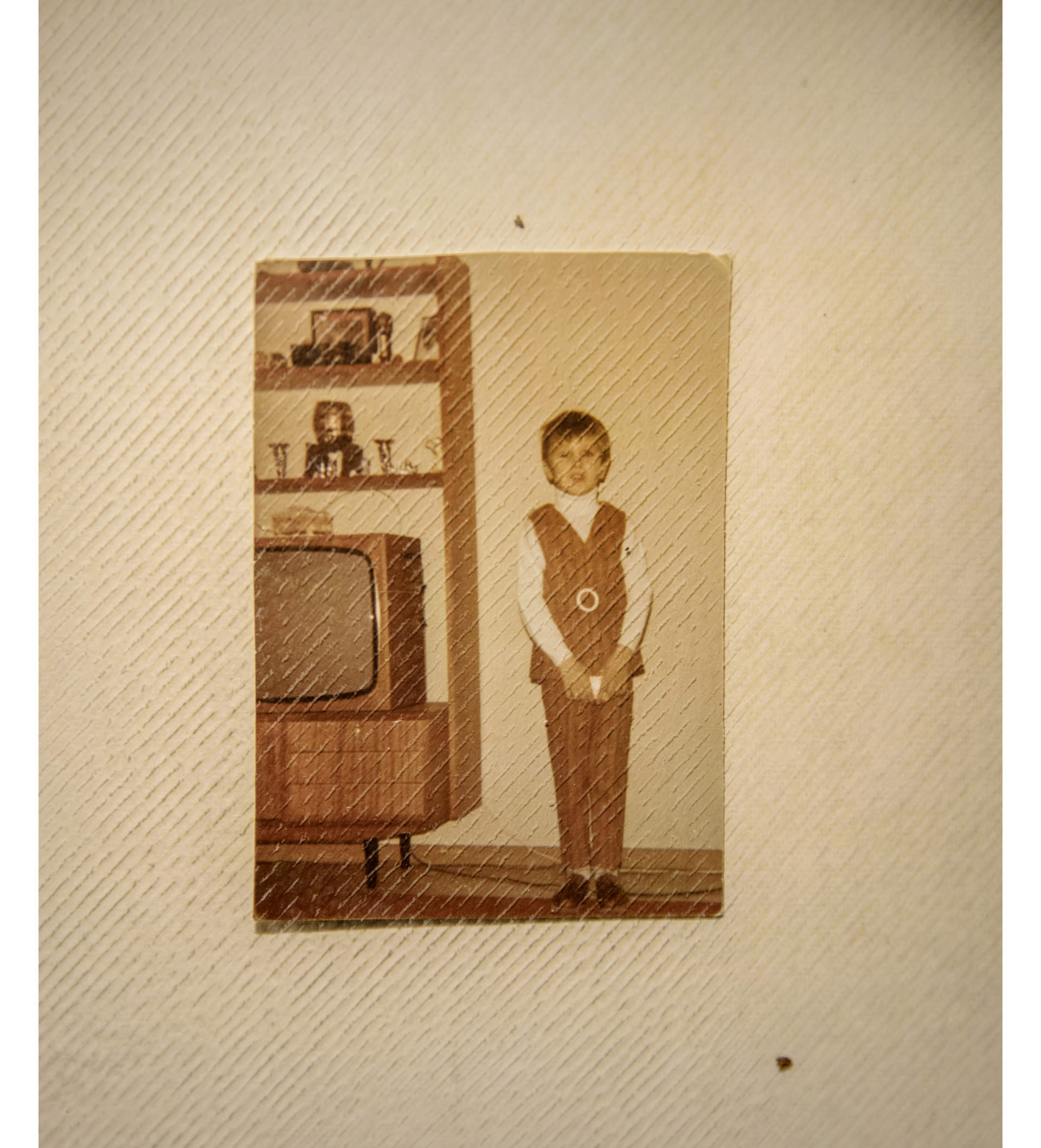

Wearing clothes sewn by a mother of four working two jobs.
The boy glances at the camera. He’s smiling, but he’s head is lowered in a subdued position. Or maybe that’s just what we read into the image because we know about the beatings.
It was on Jouko his father’s fists would land.
– He was beaten from a young age. His father wanted daughters. Jouko was the eldest son and that made him the one who had to take it all.
Ulla’s words are confirmed by the official records we have read. An alcoholic father with violence as his primary form of communication.
– He was a good worker, that should be added.
But that’s the extent of the effort to defend him. Ulla divorced her husband a few years after the family moved from Finland to Uppsala, Sweden.
She was alone with four children, a caretaker at first, but when she had learned enough Swedish, she studied to become a nursing assistant.
– One time I asked for help for myself. I asked for sleeping tablets so I could get some sleep, I didn’t get any.


”Patient data: In 1977 Jouko enrolls at Lövsta youth detention centre. He completes elementary school with relatively good grades. After school he tries out a few different jobs but none of them last very long due to his lack of aspiration. In 1980 he is briefly treated for alcohol poisoning and prescription pill poisoning. This is the first mention of addiction of any kind. At Lövsta he is perceived as deviant, both physically and mentally immature, and became, in part because of this, something of a target.”
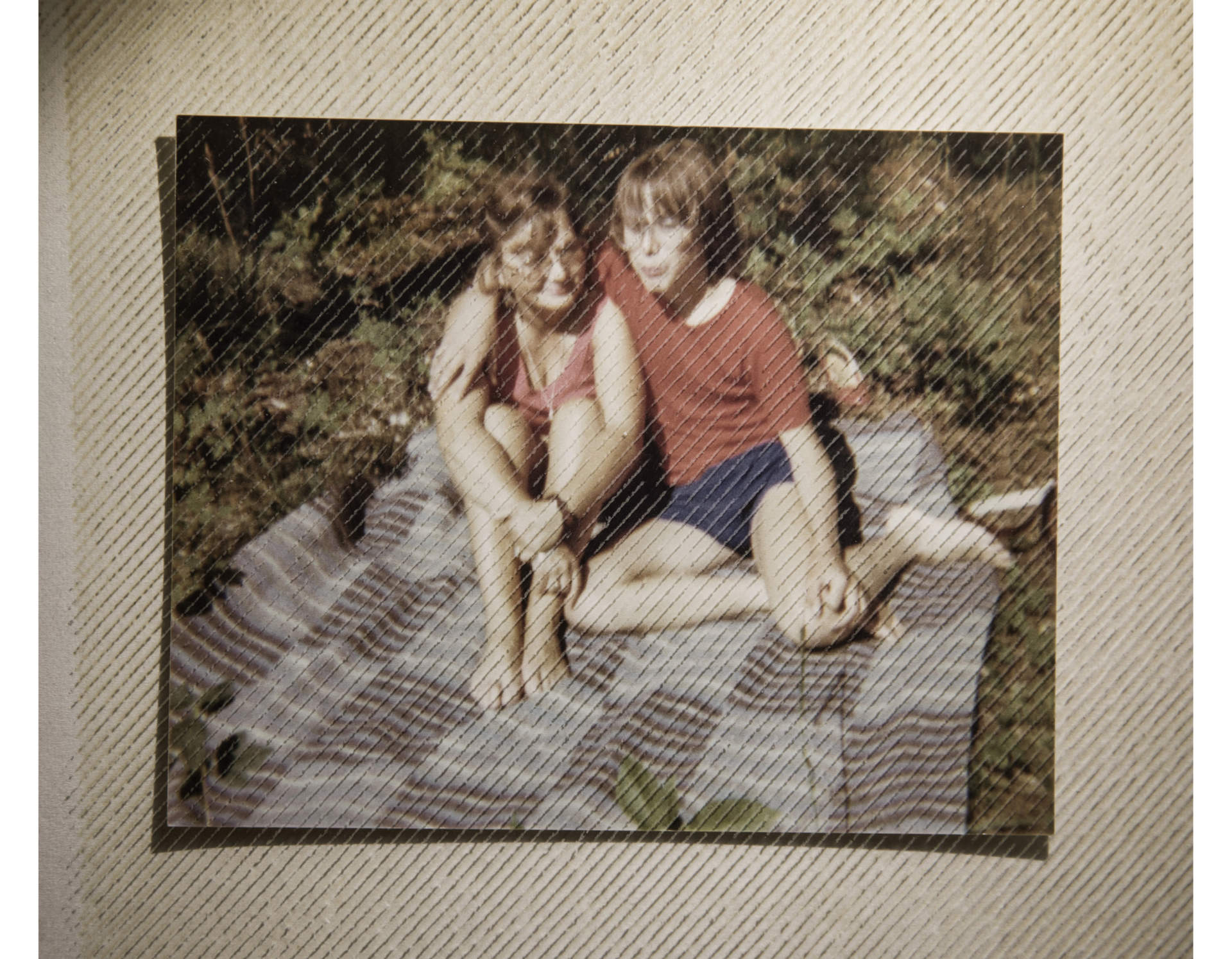

Moments of affection and happiness, they were there, even in a childhood filled with sadness.
Another paper on the kitchen table. Brittle and worn. It’s a hand written letter, dated 1985-02-13. The letter includes a poem where the last line reads ”A child who is loved feels safe”.
At the time, Jouko is locked up at Karsudden, a closed psychiatric ward. He has been convicted of a number of crimes. According to one forensic psychiatrist he is a ”borderline personality”, a term that nowadays most often refers to emotionally unstable personality disorder.
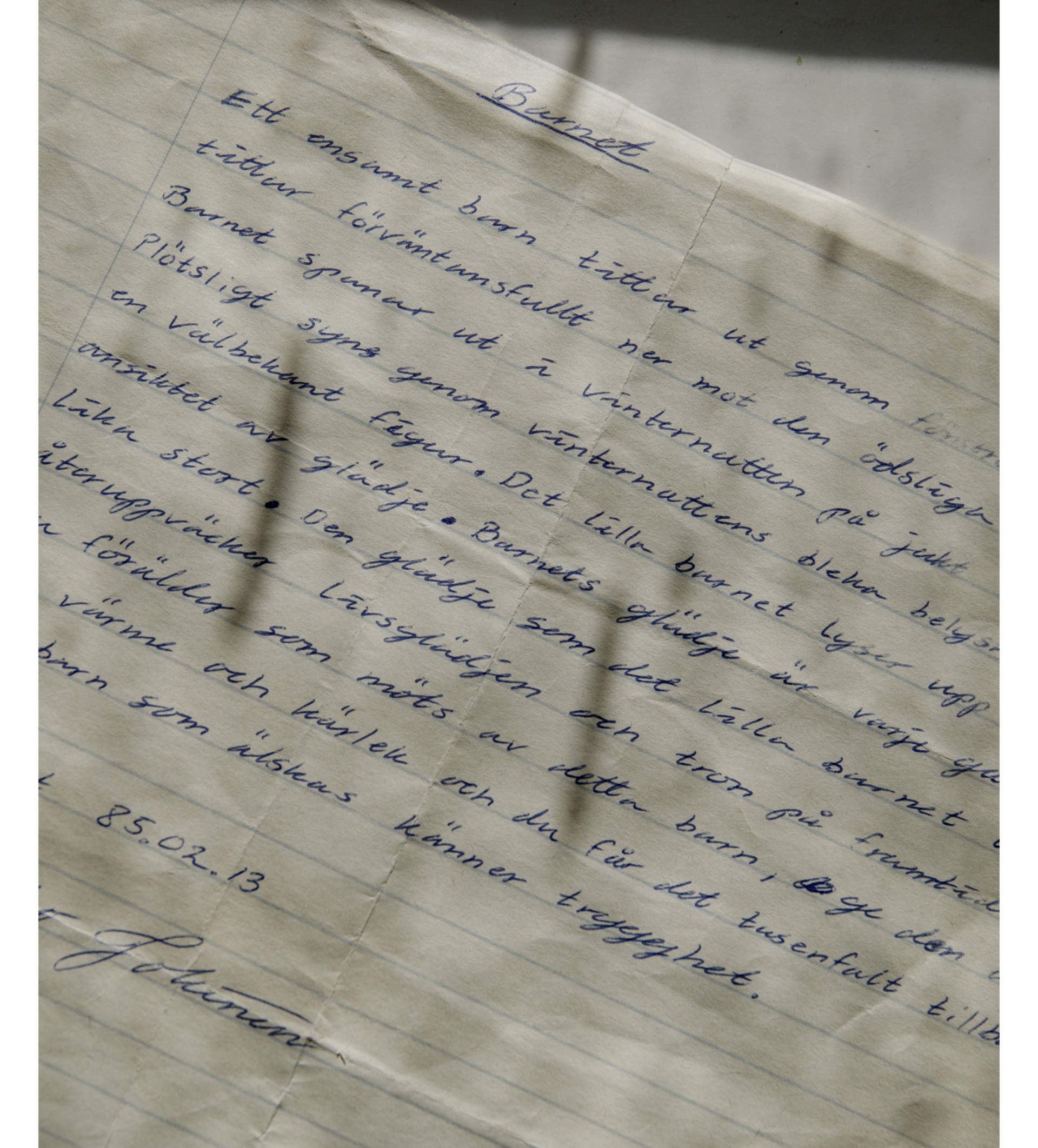

Our search continues. Pekka keeps escaping from the closed psychiatric wards. Conviction follows conviction. Armed robberies, car thefts, battery, and serious assaults. We begin to realize that the man we’ve known for a long time has hurt people. Some badly. (unauthorized possession of knives, pulling knives on people)
One time he even pulled a knife on Ulla.
– I told him to just do it, my dear Jouko, but you’ll spend a long time counting bricks in prison. He threw the knife out the window and ran away.
Our image of Pekka is crumbling and we struggle to make the pieces fit. We have never seen even a glimpse of aggression nor any violent tendencies whatsoever. Pekka and Matte have always been praised as heroes. The father figures of the streets who were always there for you and never judged.
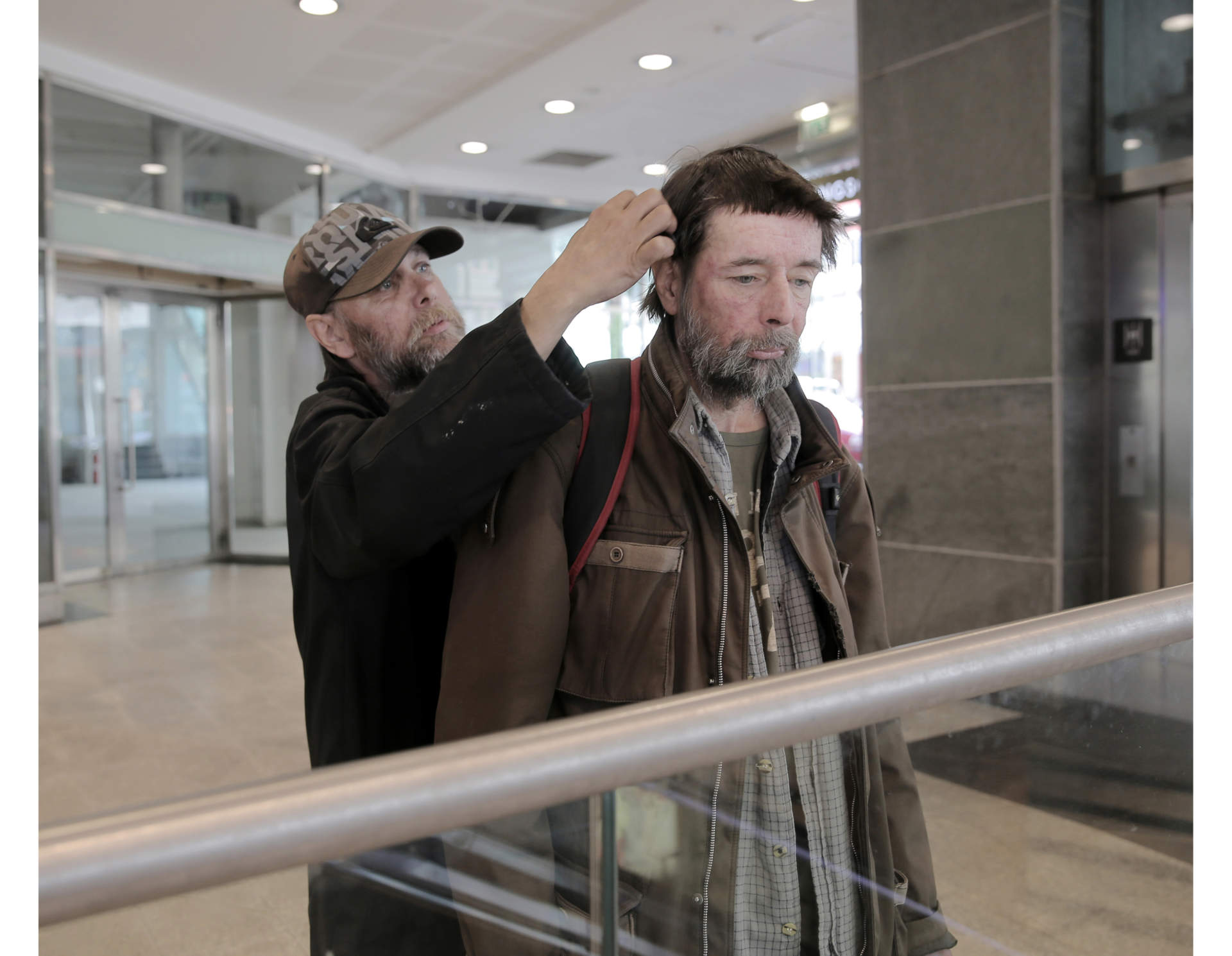

The morning routine before a day’s work in the Sergel walkway. The change they scrape together is split evenly, everything is used to buy beer and cigarettes.
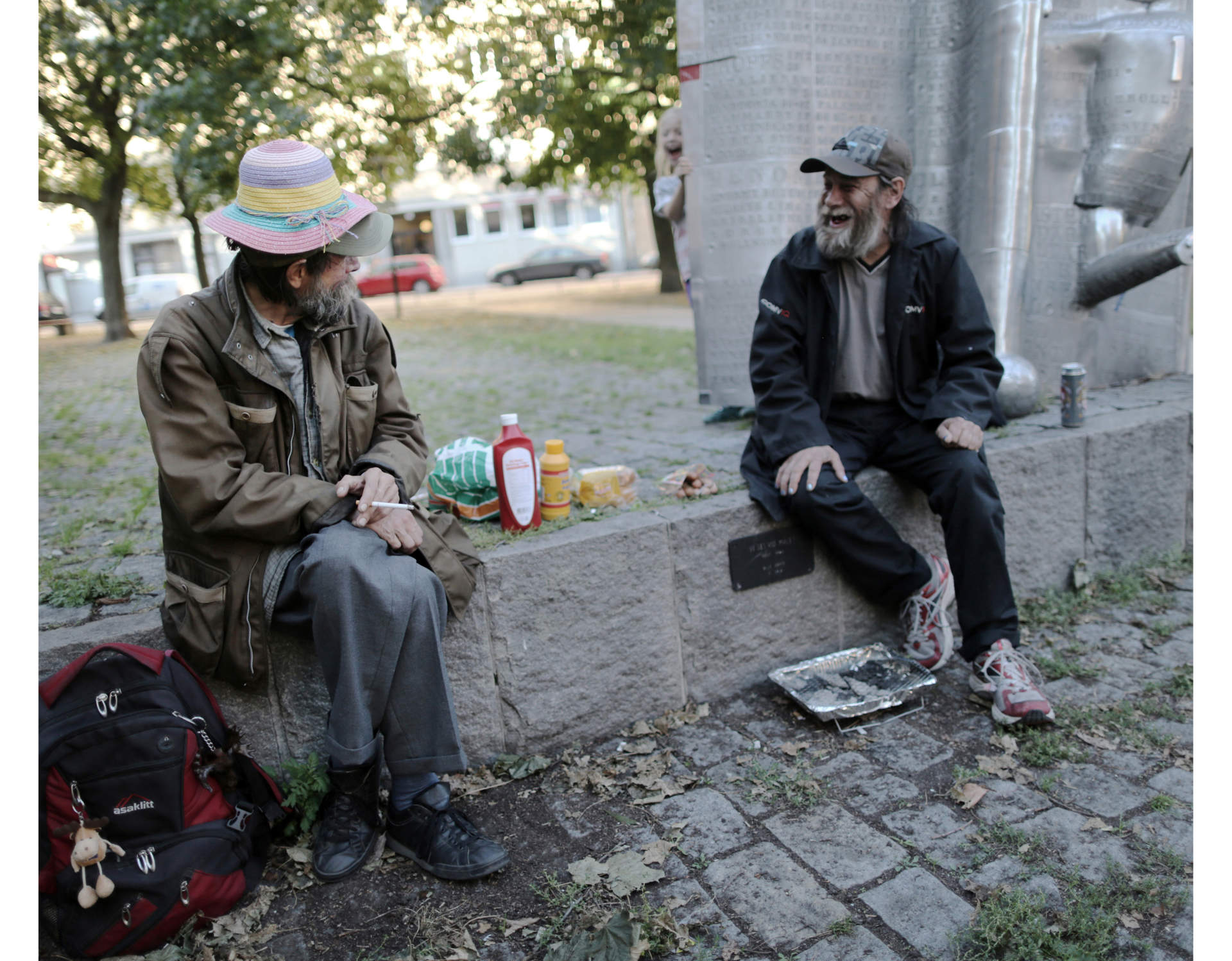

The best moments. No hangover. Beers and a disposable instant grill. Summer in Stockholm.
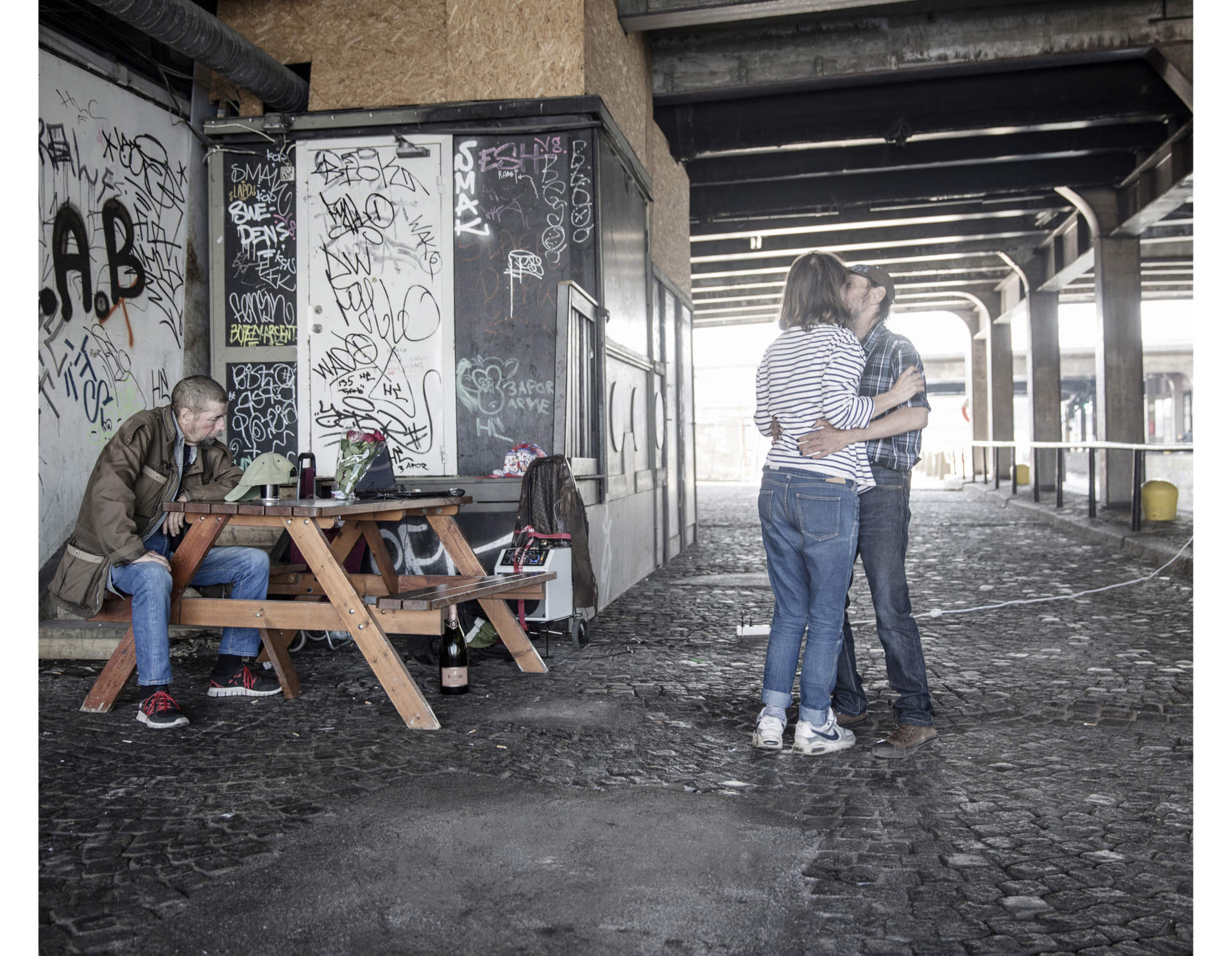

Birthday party at Slussen, July 20, 2013. Matte turns 52.
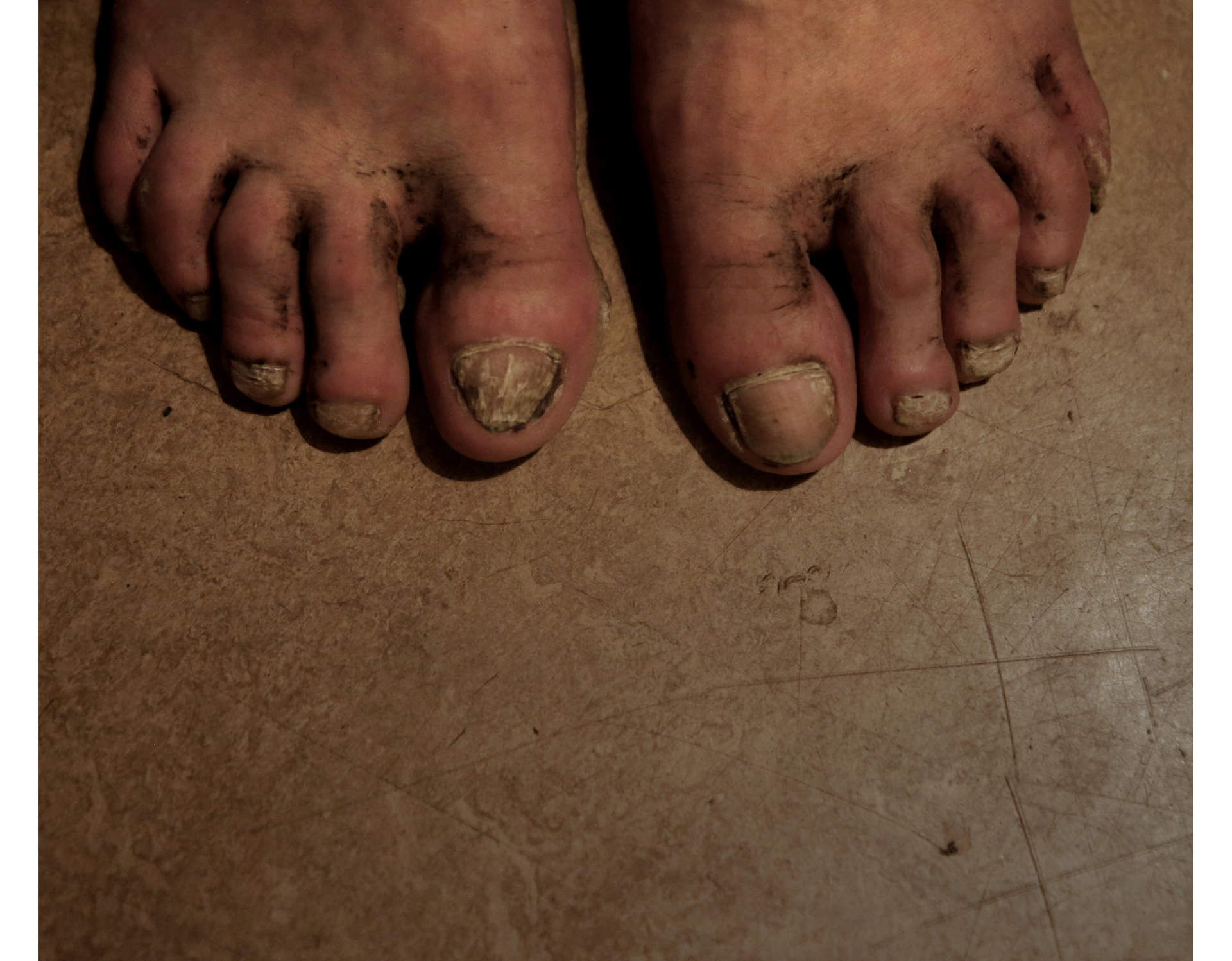

20 years on foot through the streets of Stockholm.




“If a war broke out in Sweden, it would be us homeless people who would have the best shot at surviving. We already know how to live this way.”
We found documentation of Jouko up until 1991. Somewhere shortly after that he lets go. Of society, of his family, of all the rules he would never learn to live by. For the next two decades on the streets he is Pekka Bajen.
He lives with a lie, but his own story becomes true in a way. An abused and bullied little boy who goes through foster homes, youth detention, and psychiatric institutions and comes out on the other side. He never lets himself be contained again. And he never commits another serious crime.
– I have a good life, I’m not the one to pity, he often says when we ask him about life on the streets.
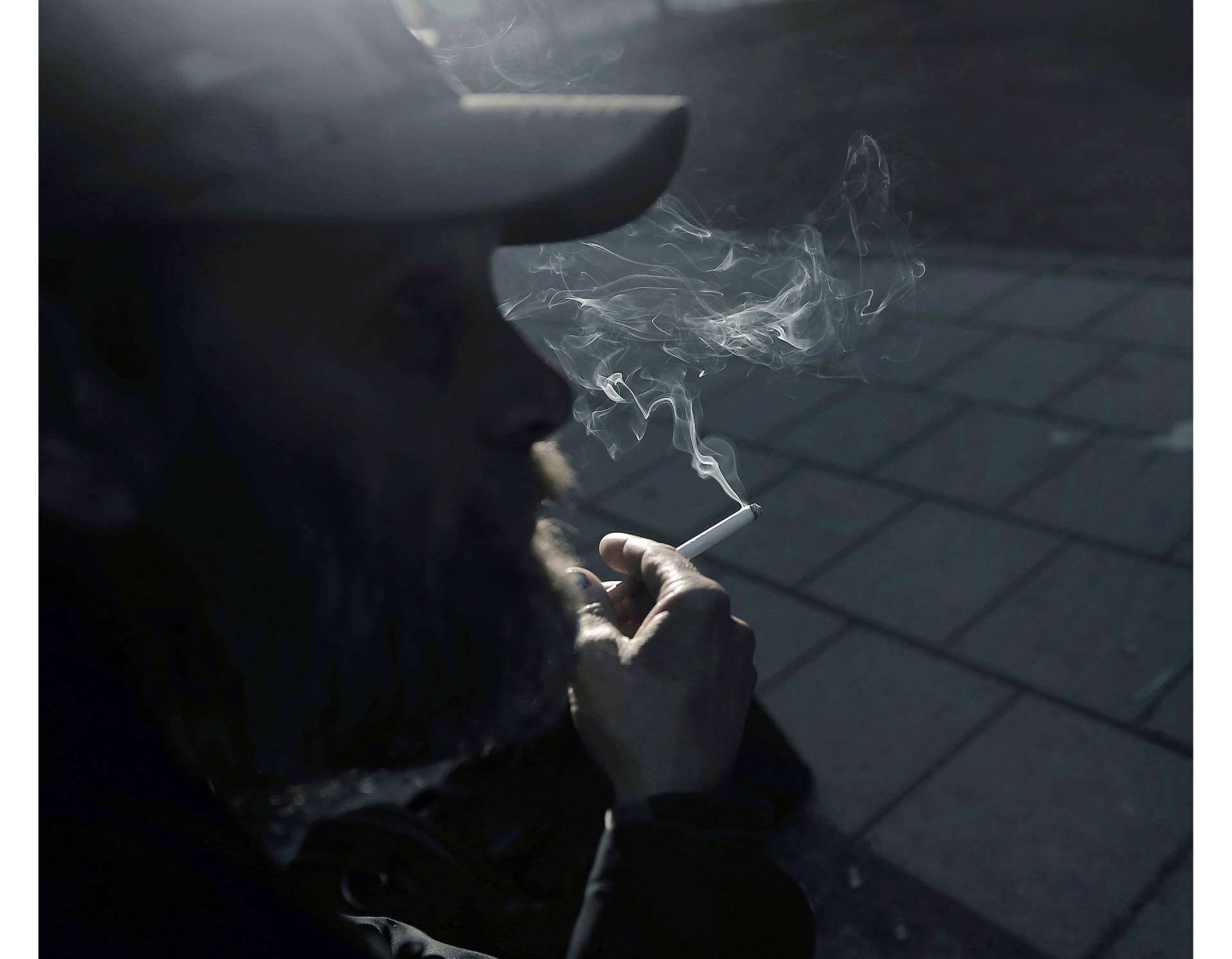

On the run from a former life. Slowly the new role becomes a truth.
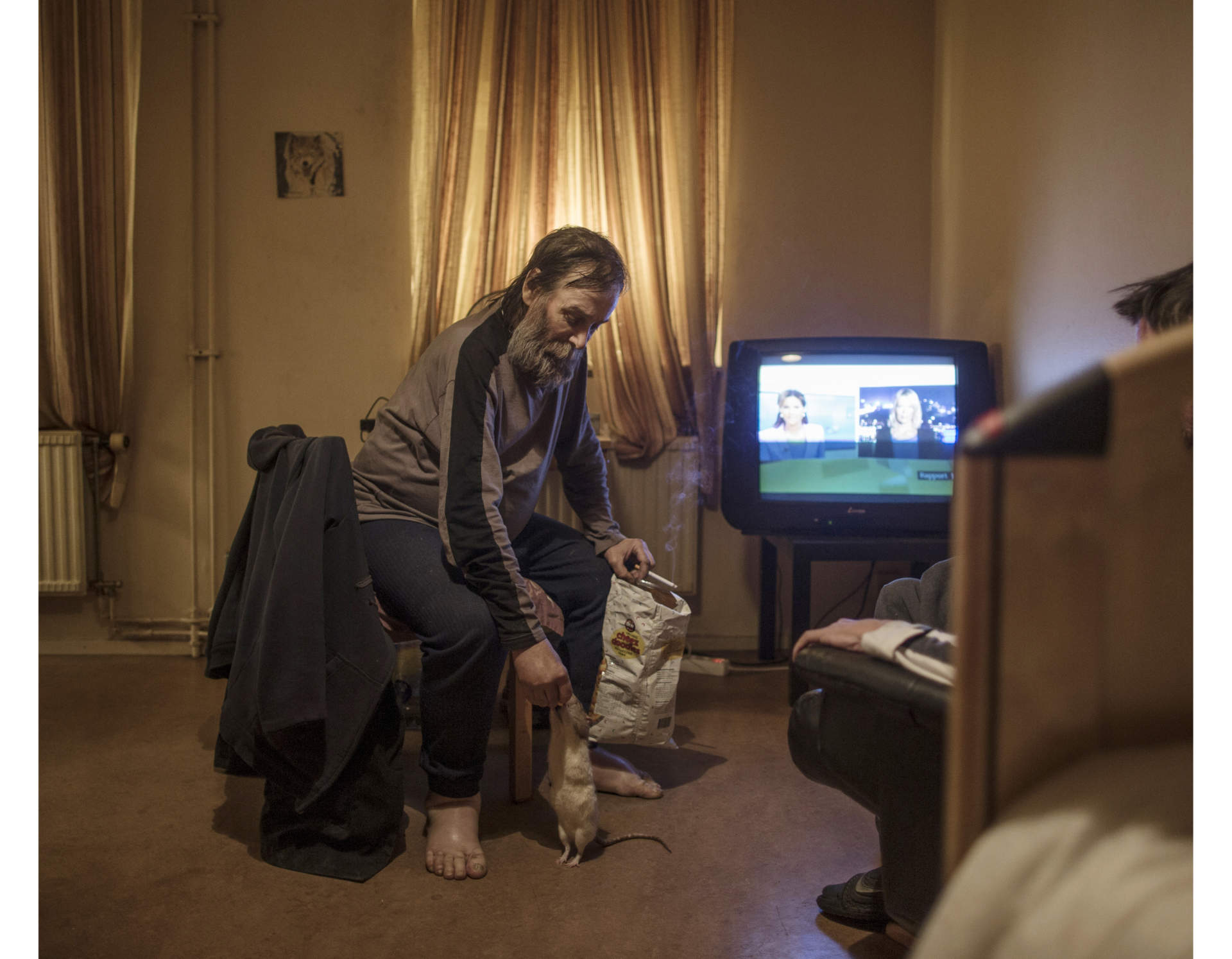

Indoors. A temporary residence at a shelter. Snow White the rat gets to come along, despite the rules.
”He saved my life. I wouldn’t be standing here today if it wasn’t for Pekka. I’m an old heroin addict and one night when I was 18 he found me near the public restrooms by the Royal Palace. I had nowhere to go and I’m sure I would have frozen to death if he hadn’t taken me home to his and Matte’s place underneath Slussen. They had a spare sleeping bag and I went to bed right there among the rats. People who live ordinary lives don’t understand what a close call it can be for people like us, but he and Matte understood. I don’t know how many times I’ve called Pekka when I’ve gotten into trouble since that first time. He never yelled and always came when I need him.”
– Katja Sjöberg, sober drug addict.
”Pekka had a black belt in all what life on the street and homelessness entails. He didn’t want people’s pity, but he wanted to be seen, acknowledged, and heard, even if the line between fantasy and reality was blurry at times. It happened on some occasion here and there that I didn’t allow him to buy his beers, but he never got angry or made a scene. I remember one time when a ’regular customer’ was a few kronor short for their purchase. It was Pekka, a homeless guy, who immediately offered up the difference. ’Here you go, take this’, he said and chuckled like only Pekka could. We came to develop a very special and warm friendship.”
– Anna Kammelid, Systembolaget employee.
” Pekka was a wonderful person with great consideration for others. Much more for others than for himself, he would always refer to himself as ’a stubborn old Finnish bastard’. I got angry with him for not doing what he was supposed to do towards the end. One time he was admitted to Sankt Göran Hospital, it was in 2017, six months before he died. I was coming to visit him but his bed was empty. I made a quite a scene, yelling at the staff for not knowing where he was. I went outside and sat down right as he came strolling back. He had been to the local pub to have a beer, despite being close to dying from his illness. He could never take being locked up.”
– Lotta Ledin, volunteer at Stadsmissionen.
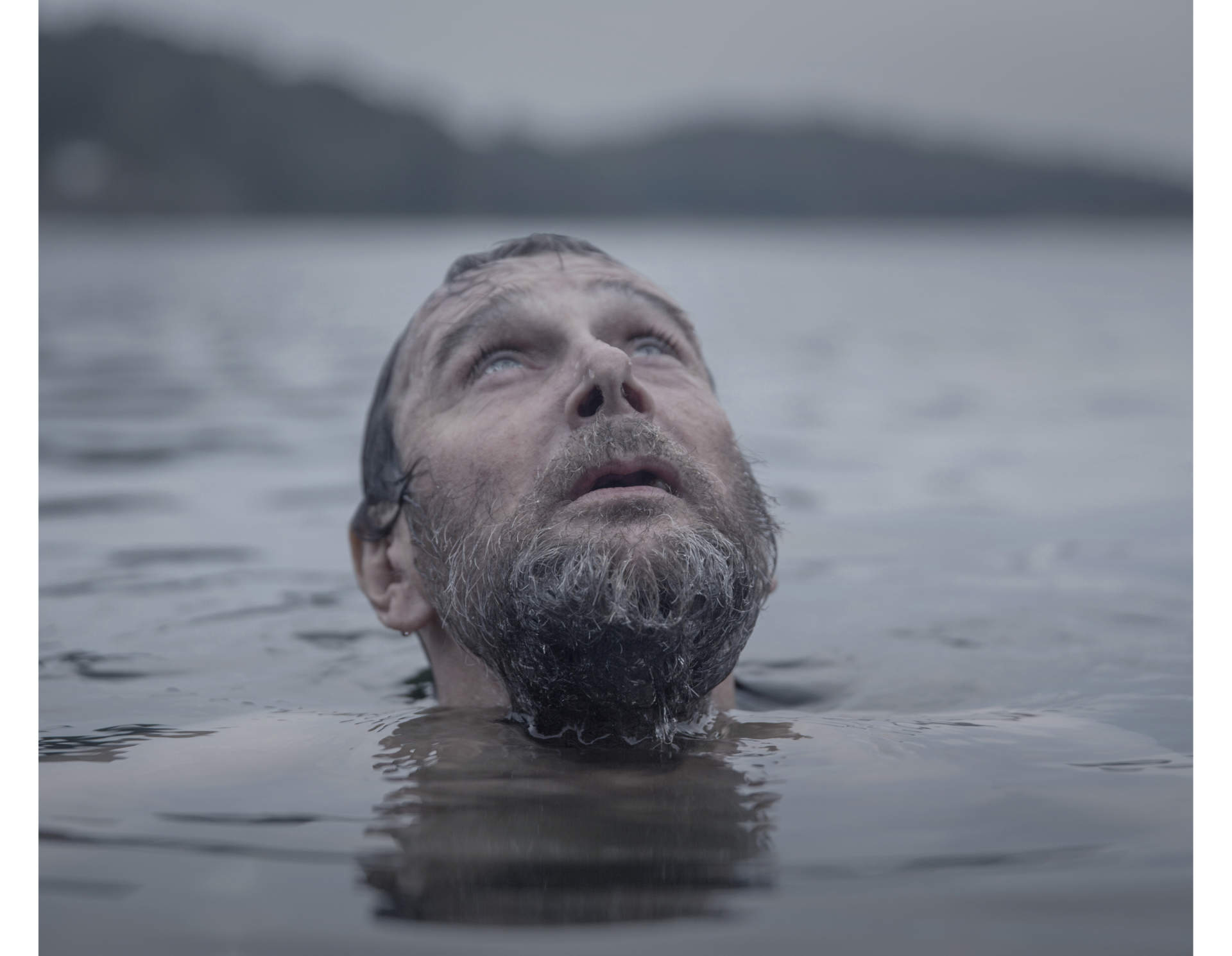
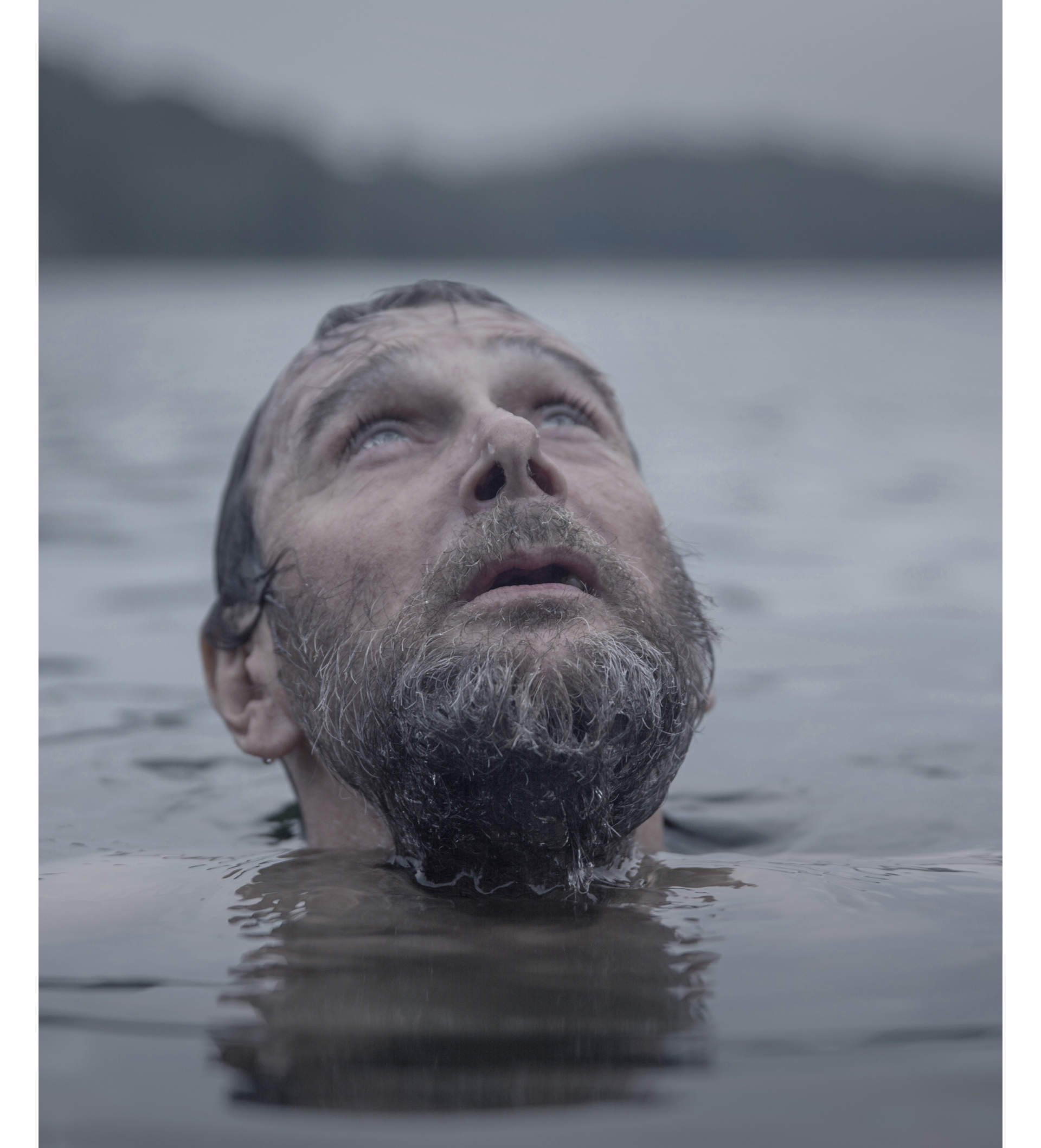
All the secrets, does he think about them or is life just about here and now?
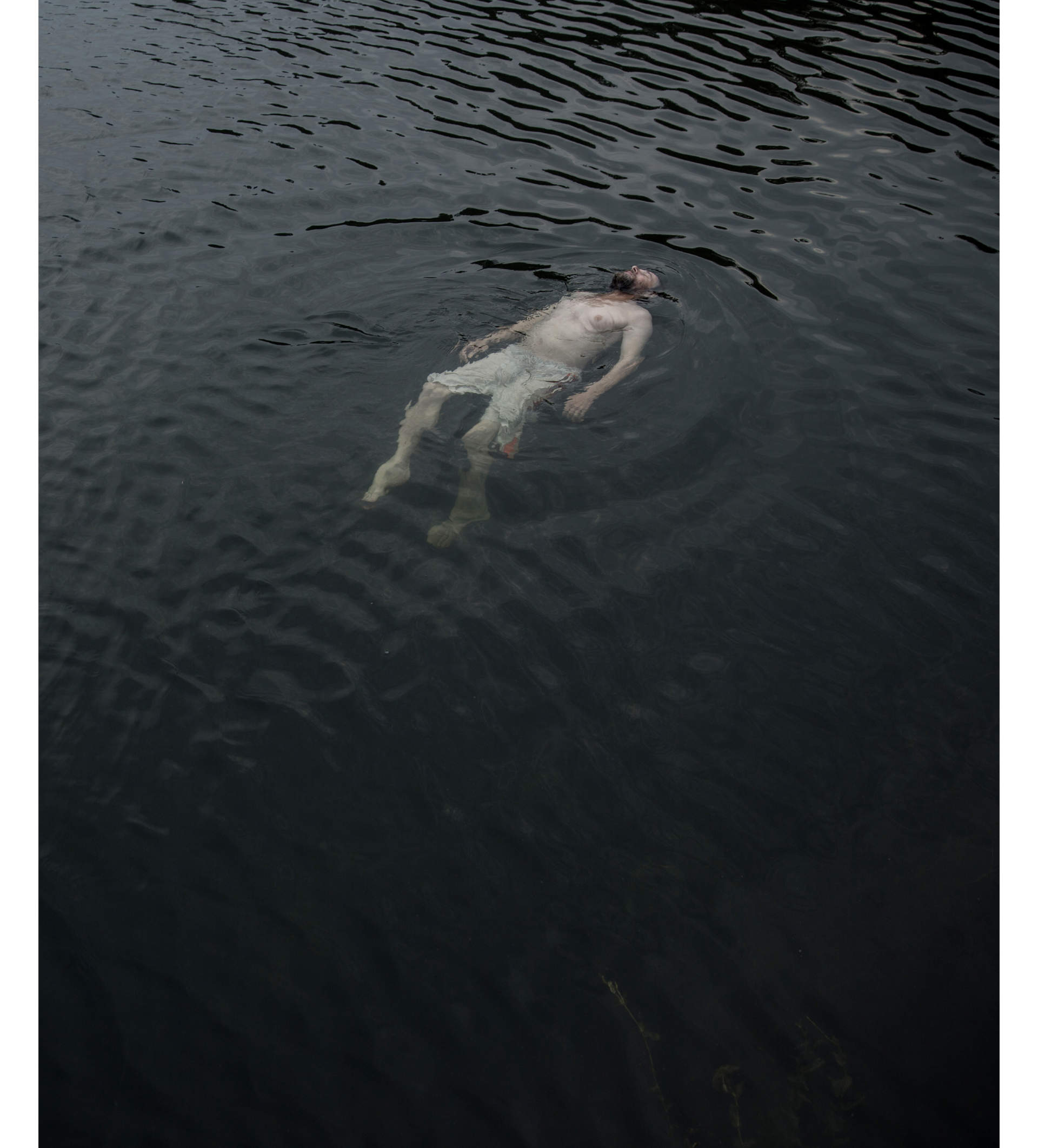

Still healthy, still free. From this moment on, life will be different. Worse again.
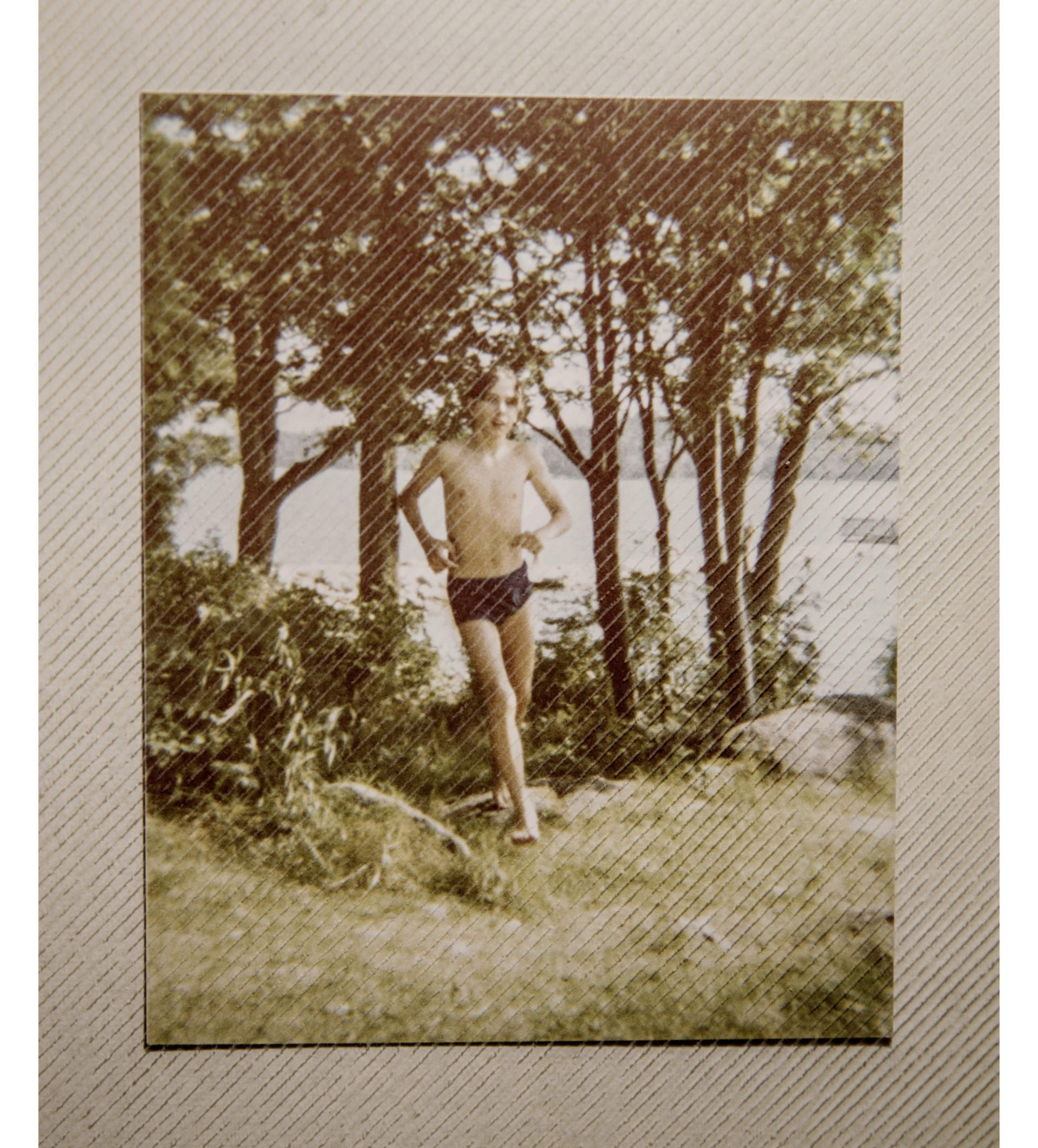

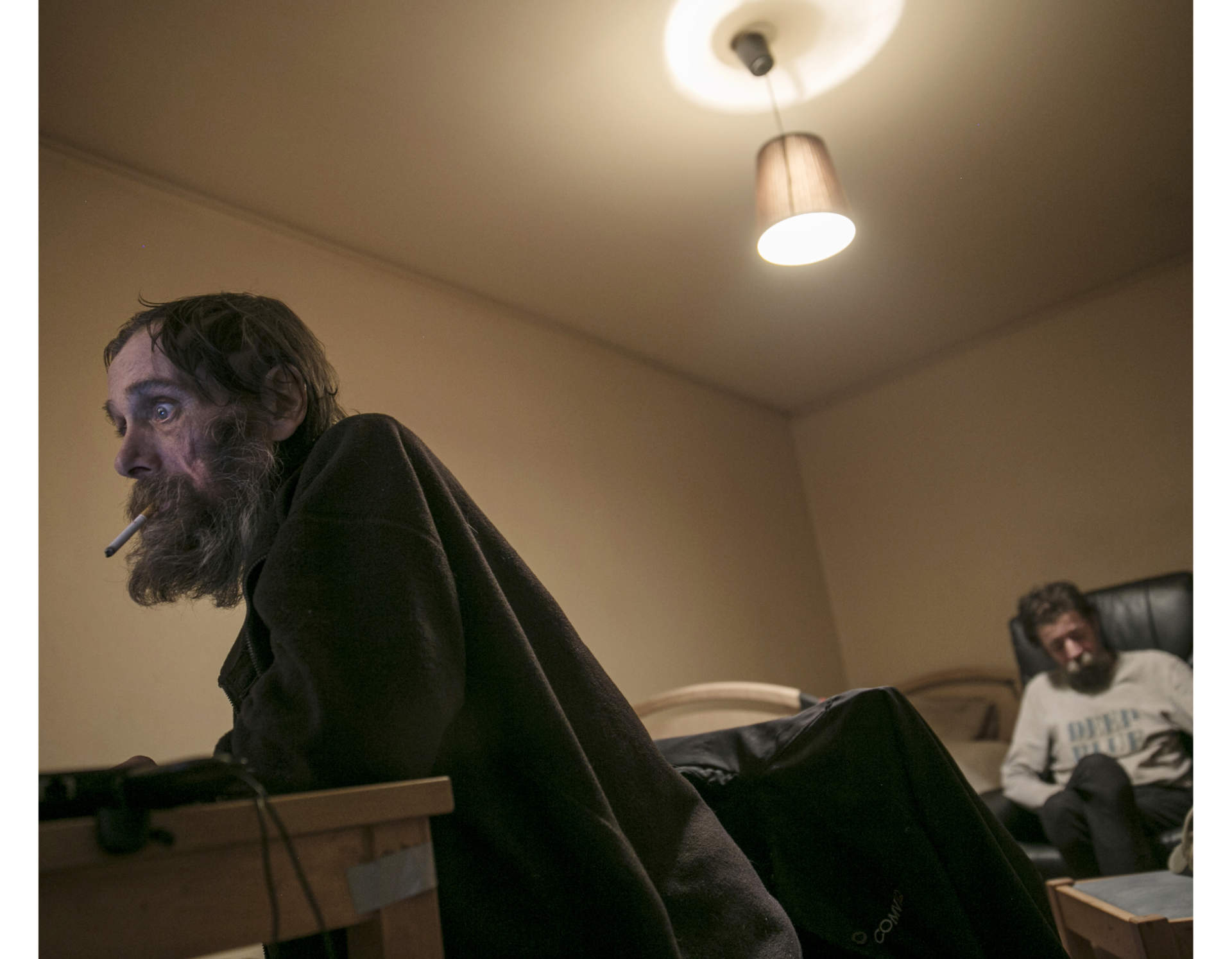

The silence between two friends. Decades together.
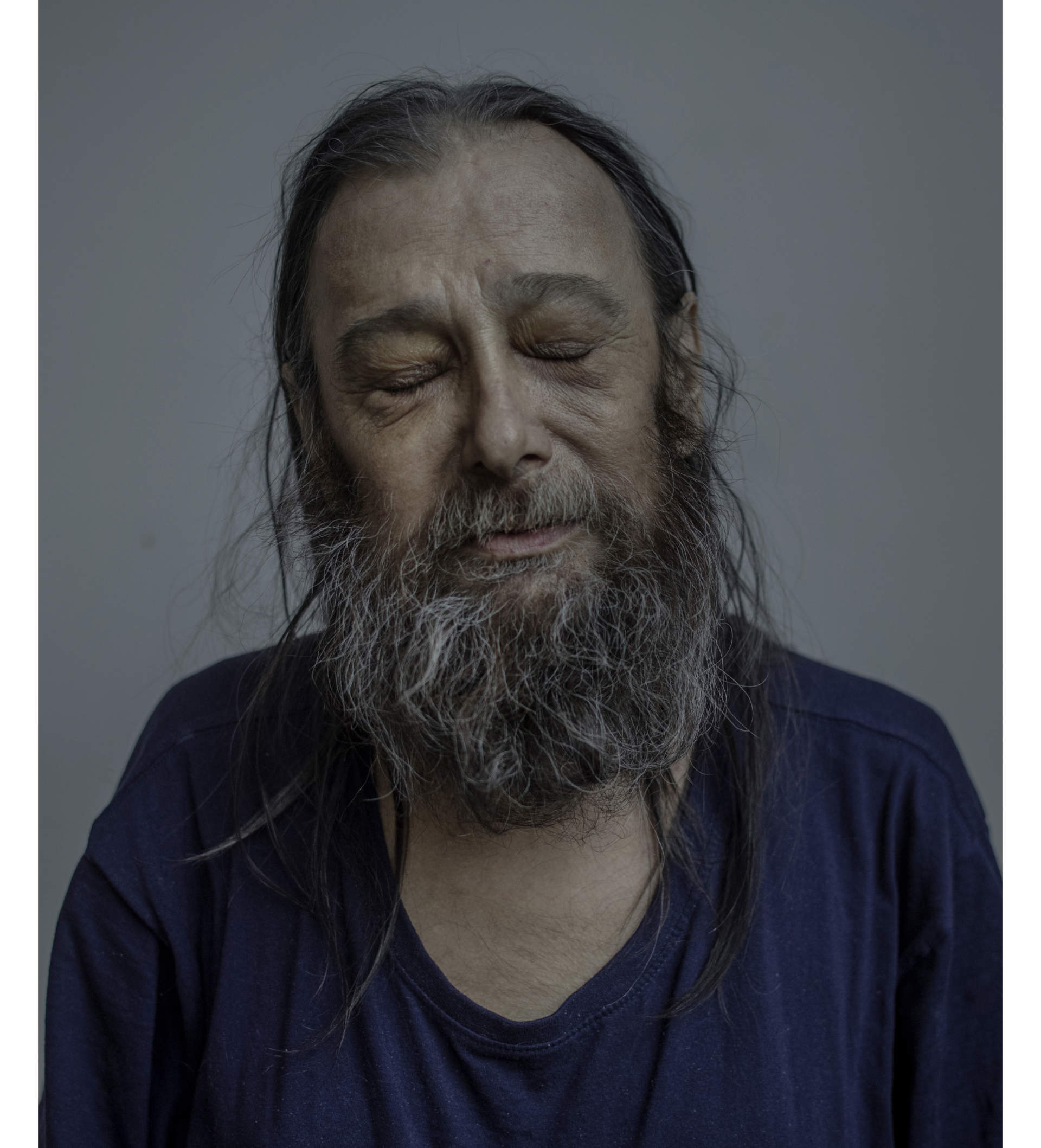

A lot of the younger homeless people view Pekka as something of a bonus dad. A person who would never judge, because he’s made all the same mistakes himself.




“Next stop, Slussen”
The subway car makes a drowsy move forward. It’s one of the old kinds, the kind that screeches and bellows its way ahead. It’s late in the evening, but it’s not completely dark yet. The sky over what was Pekka and Matte’s home is always polluted by the lights of the big city.
For 12 years they saw the commuters pass. Thousands every day.
When it was summer and Pekka would dance to the Everly Brothers. When it was winter and they built their shelter using trash cans and a tarp.
Did anyone see them down there?


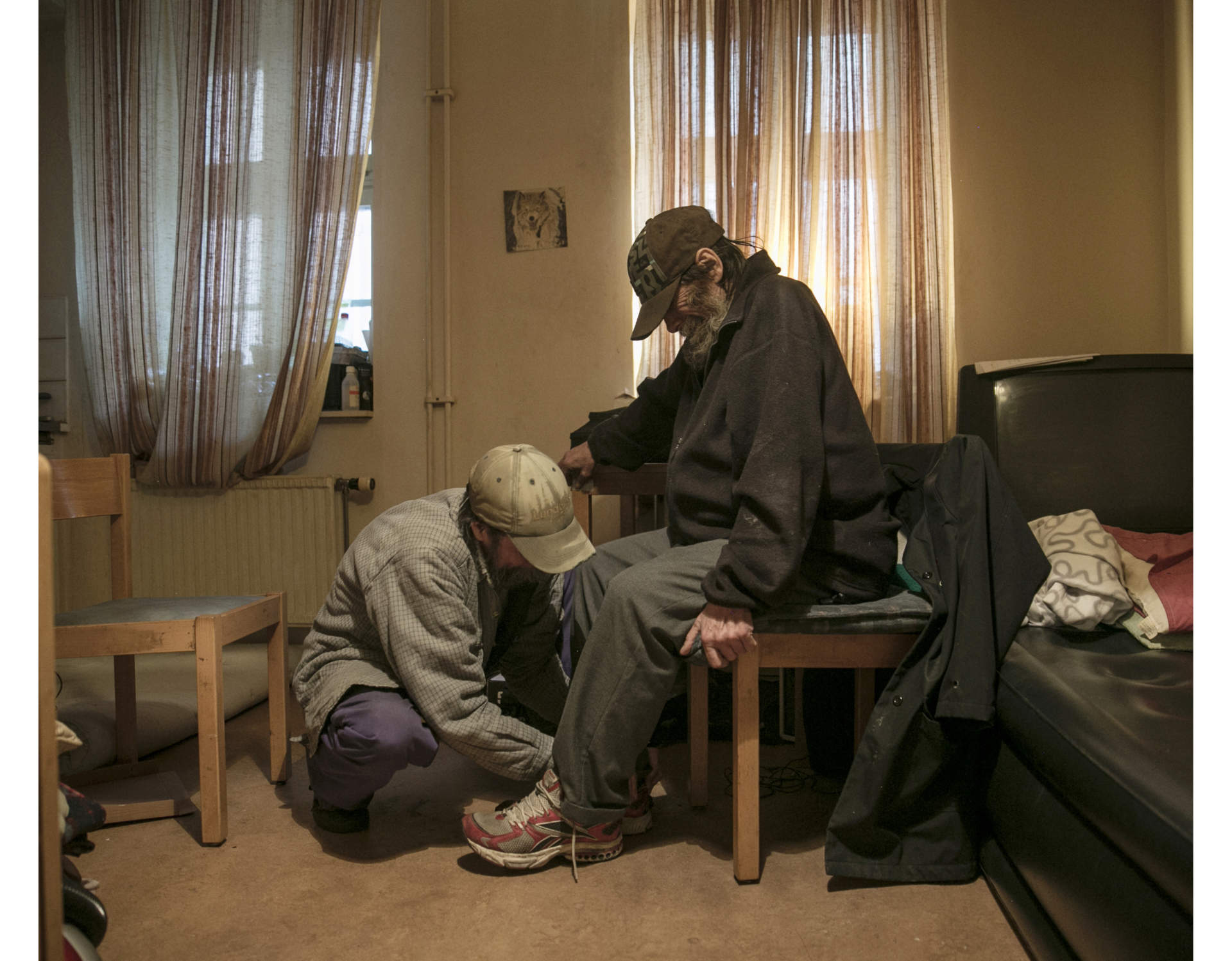

Chronic venous stasis in his spleen, severe cirrhosis, chronic inflammation of the pancreas, mild general arteriosclerosis, cancer.
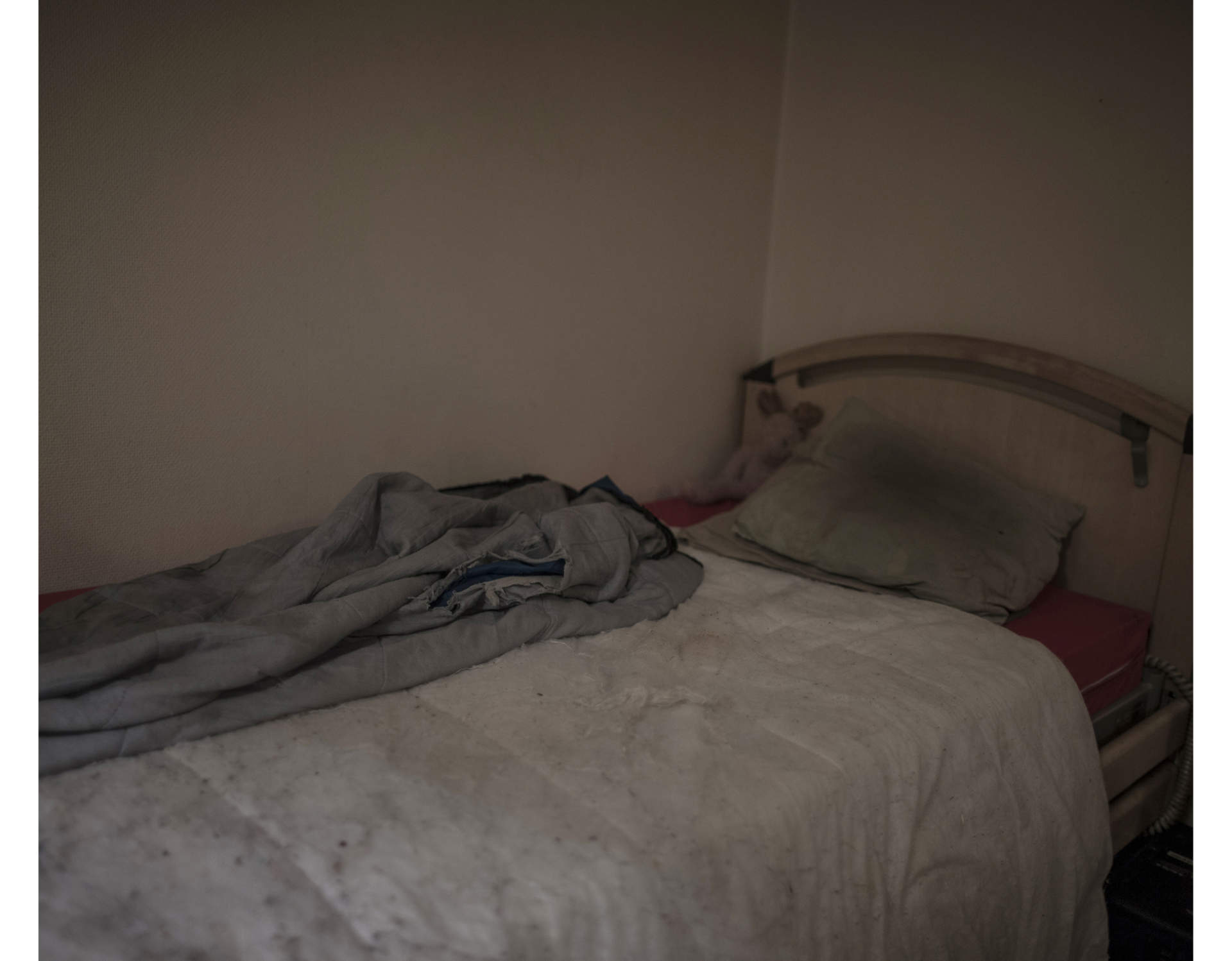

In the hospital again. The bed at the shelter is empty.
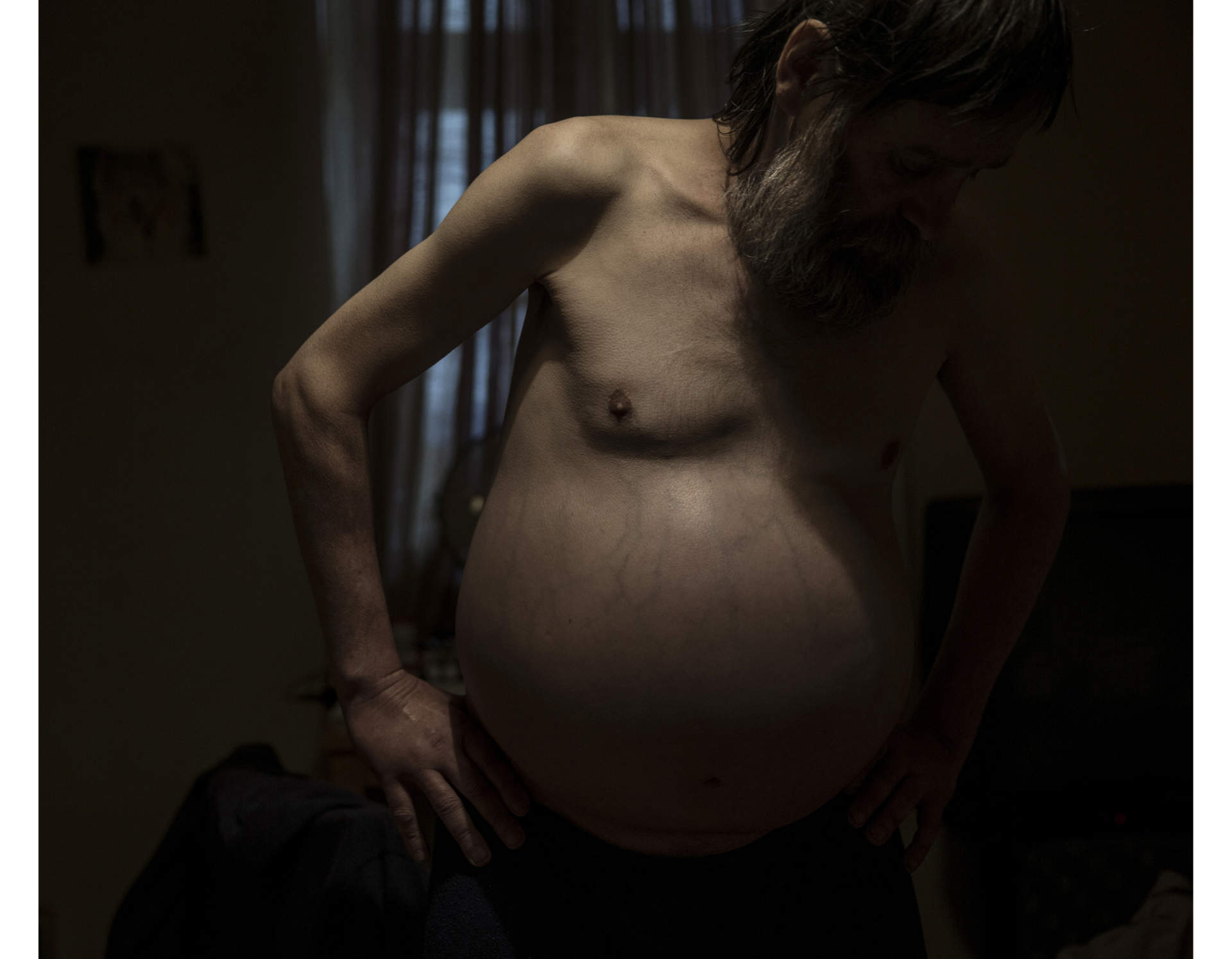

“They’ve tapped 140 liters of fluids out of me.”
Matte is alone now. He cut off all ties with his family years ago, or maybe they cut them with him.
We send some pictures and videos of Matte together with Pekka to one of his brothers. The man replies that he enjoyed seeing them, but that he can’t tell which one is his sibling. That’s how long it has been since he’s seen Matte.
– Are you really going to spend that much time on someone who caused so much agony and made his mother so disappointed?
That’s as much as anyone from the family would like to comment.
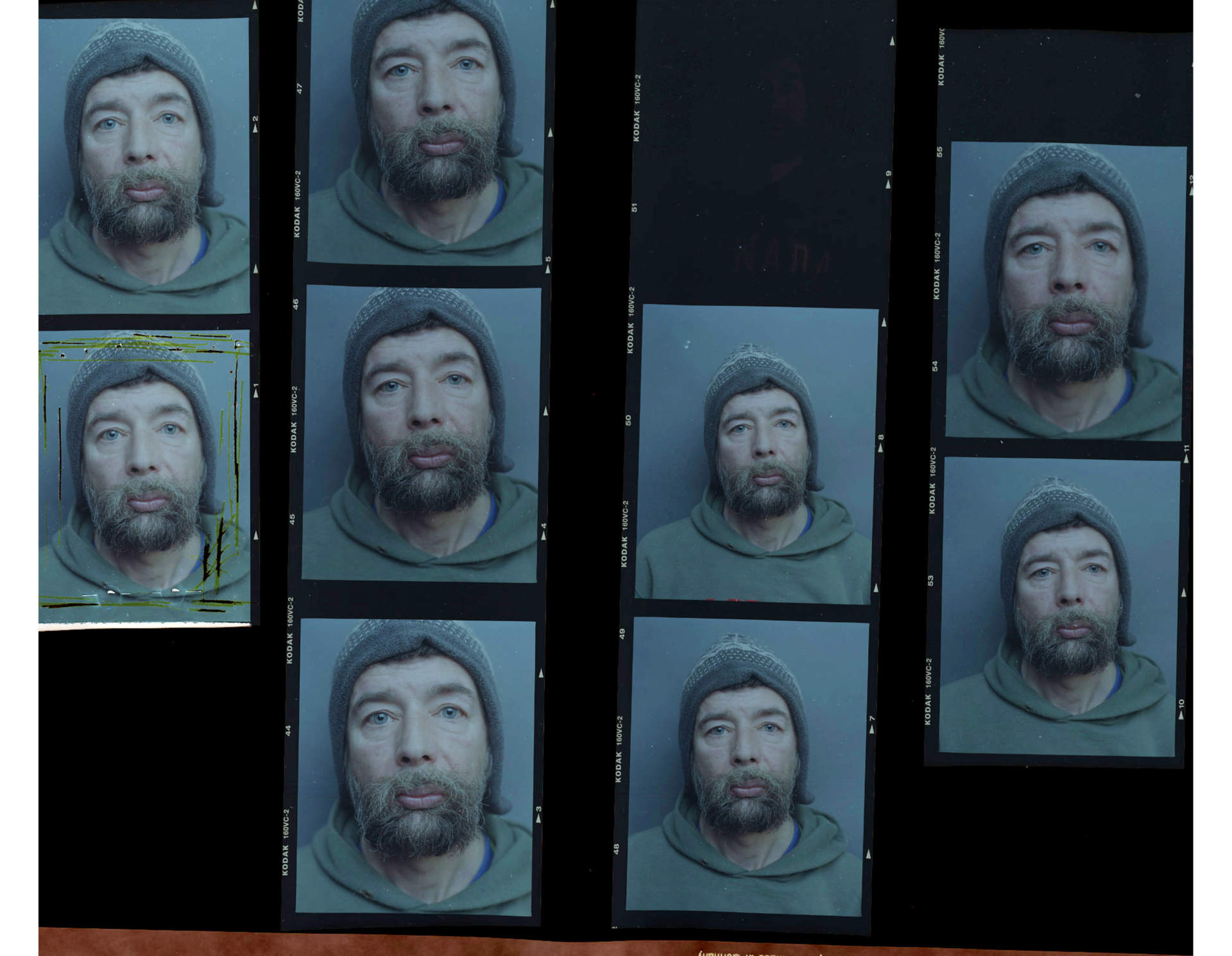
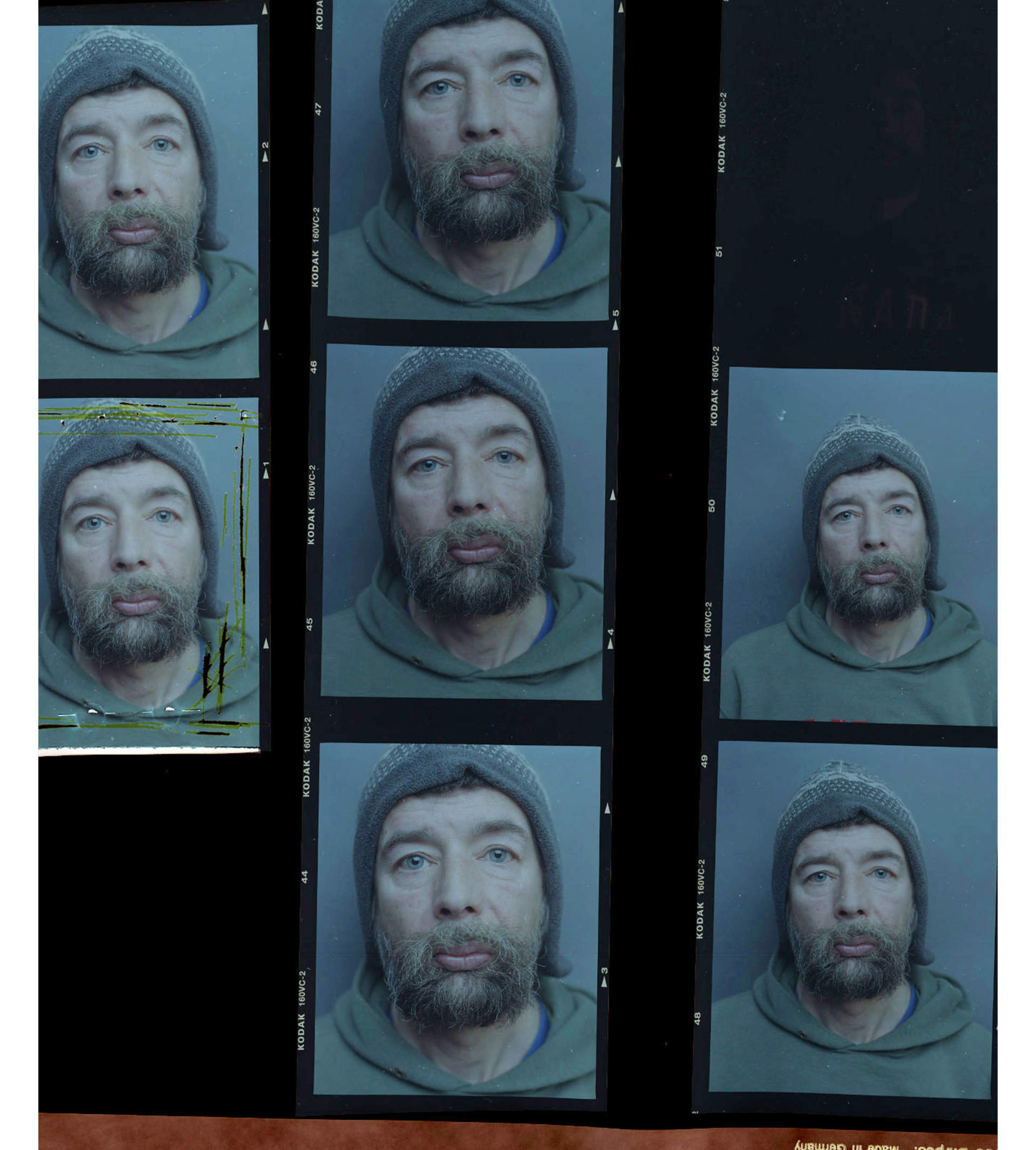
Mats ”Matte” Hofgaard, former odd jobbman. ”I helped put up the facade on the Globe, I’ve seen this city from top to bottom”.
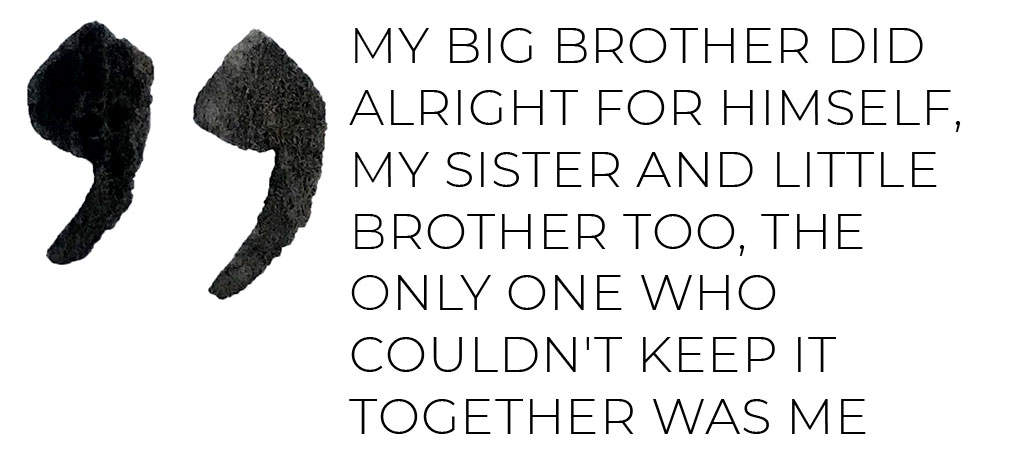

Matte’s father, ”a tough but fair bastard”, built a sailboat and sailed across the Atlantic. He lived the rest of his life in the West Indies. His mother died a few years ago. Three out of four siblings attended the funeral.
When it was the two of them, life didn’t require much self-reflection. Matte and Pekka were each others mirrors. Neither of them would ever judge the other.
Now there’s time to think. What did life become?
– My big brother did alright for himself, my sister and little brother too, the only one who couldn’t keep it together was me. I was born during a thunder storm and it left its mark.
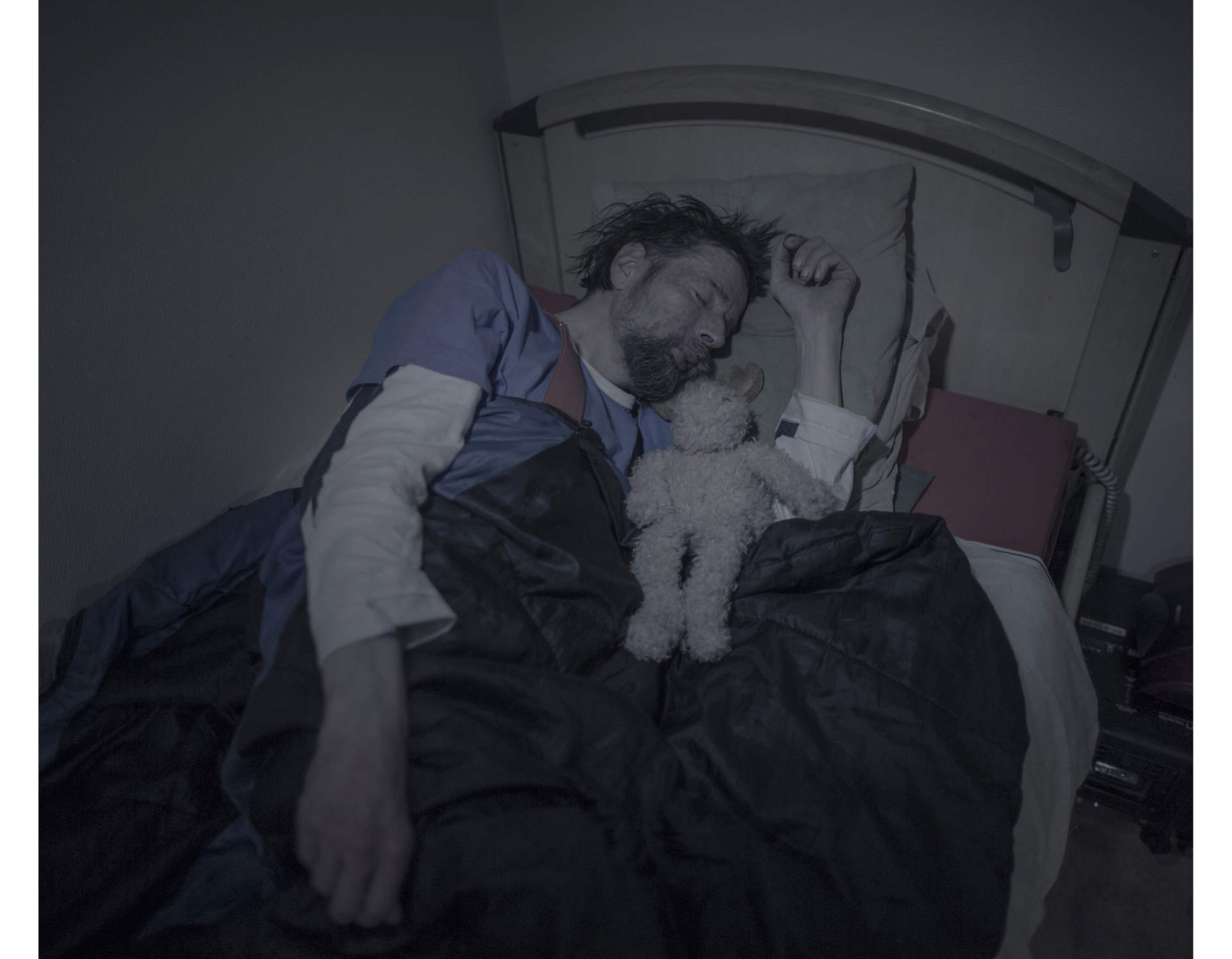

“My siblings did ok for themselves, the only one who couldn’t keep it together was me.”
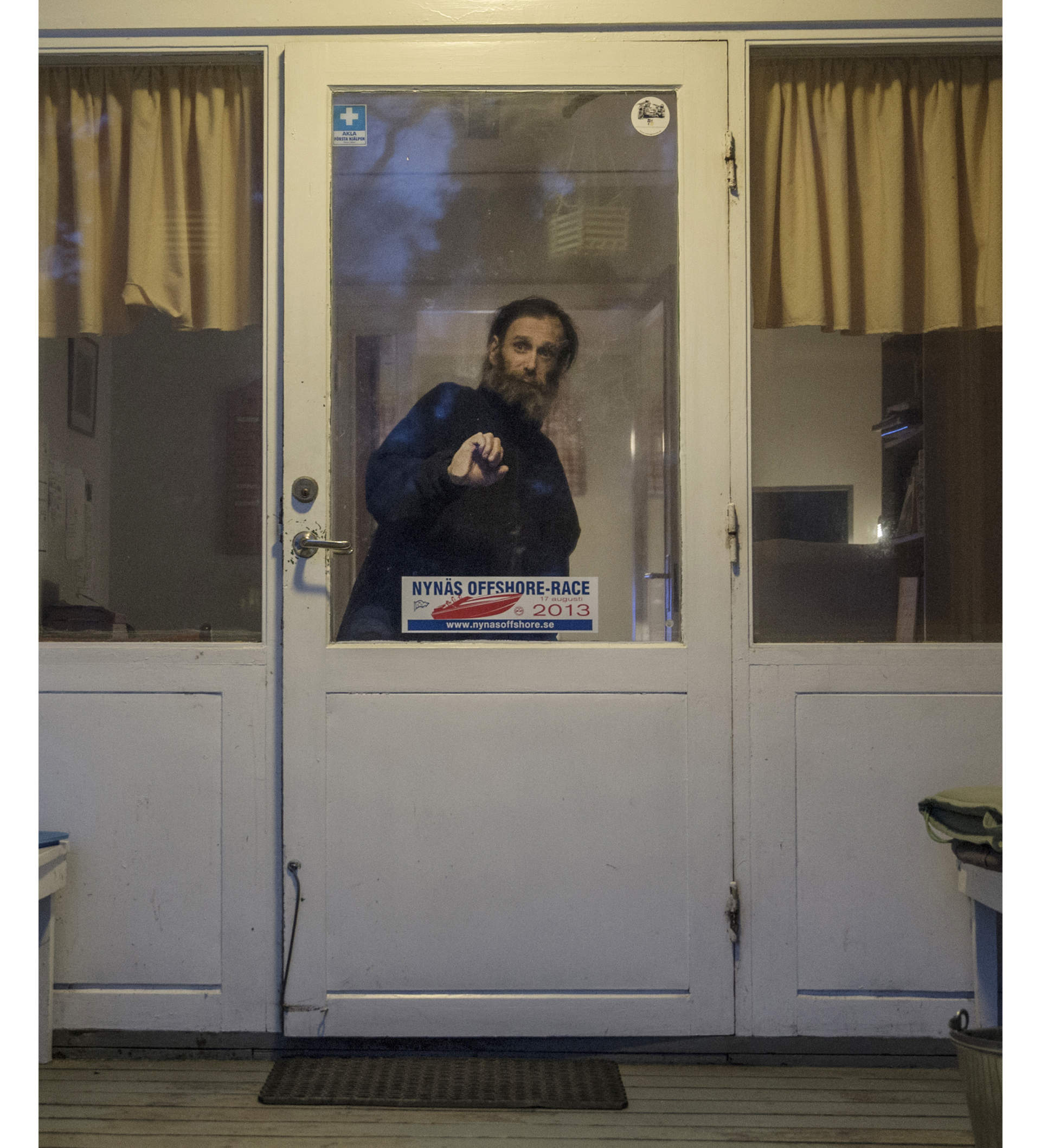

Supported housing Hamnvikshemmet in Nynäshamn. Pekka and Matte say goodbye after a visit. He’s sober for a little while, but is on his way out on the streets again.
No, there was no thunder storm in Kolbäck on July 20 in 1961. No storm, no deluge. According to SMHI’s archives it was cloudy and 20 degrees. But besides that, the tale Matte likes to boast about is true, that he’s one of only a few who can say they were born in the barn. Or more precisely, he was born at home.
– I was in such a hurry to get out that my mother didn’t make it to the hospital. I was a troublemaker from the very beginning.
He describes himself as an Emil of Lönneberga, but in the stories the pranks always had good intentions. According to Matte he wanted to get into foster care when he was young, so his mom wouldn’t have to deal with him anymore.
– I wasn’t like my siblings and that was very clear to me. I thought it would be better for her that way.
We don’t know if that was how it happened, but we do know that Matte lived in a foster home in Östervåla from the age of 13. Those were turbulent years. Like all the others, before and after.
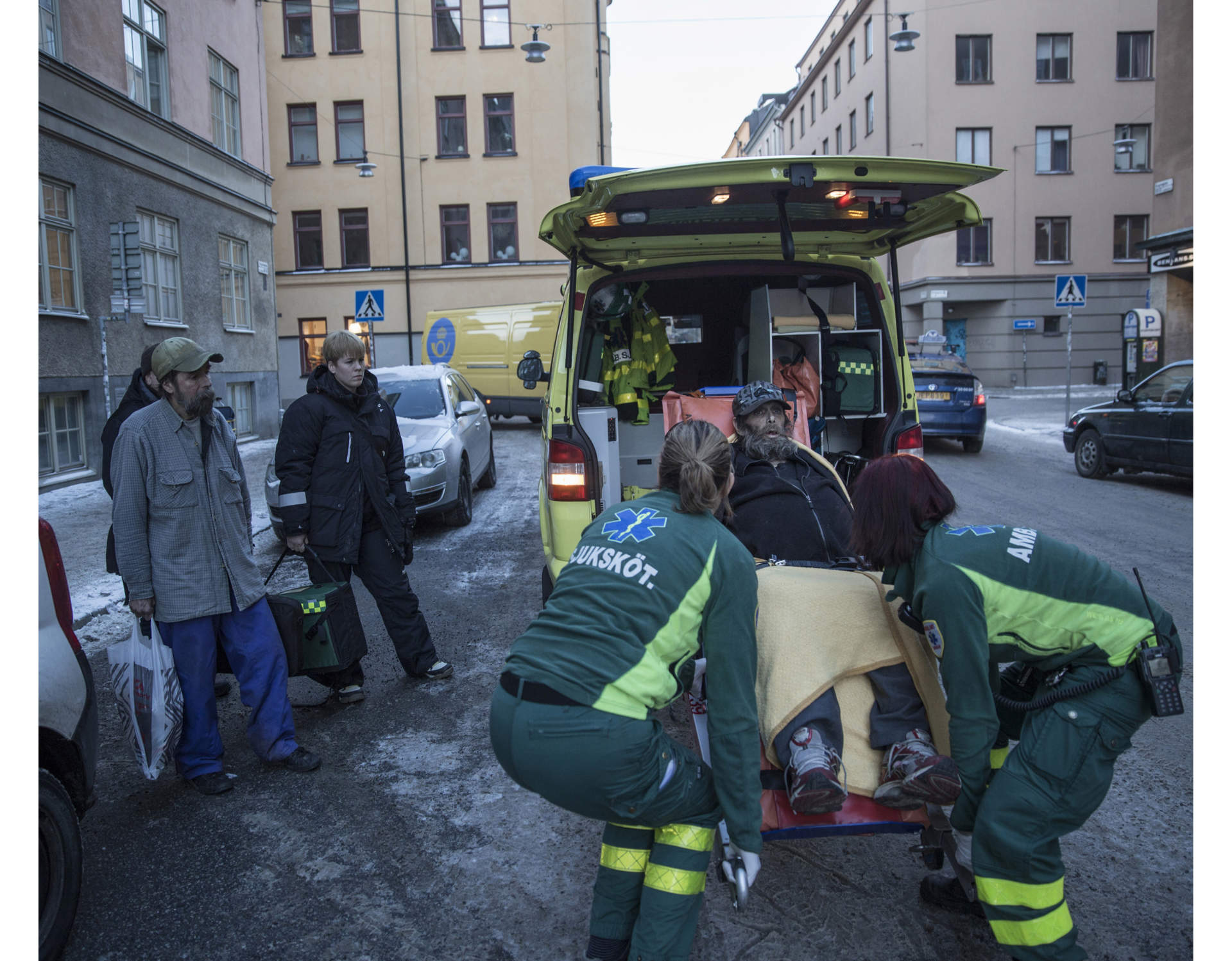

Matte is the one calling the ambulance. His best friend is almost unconscious.
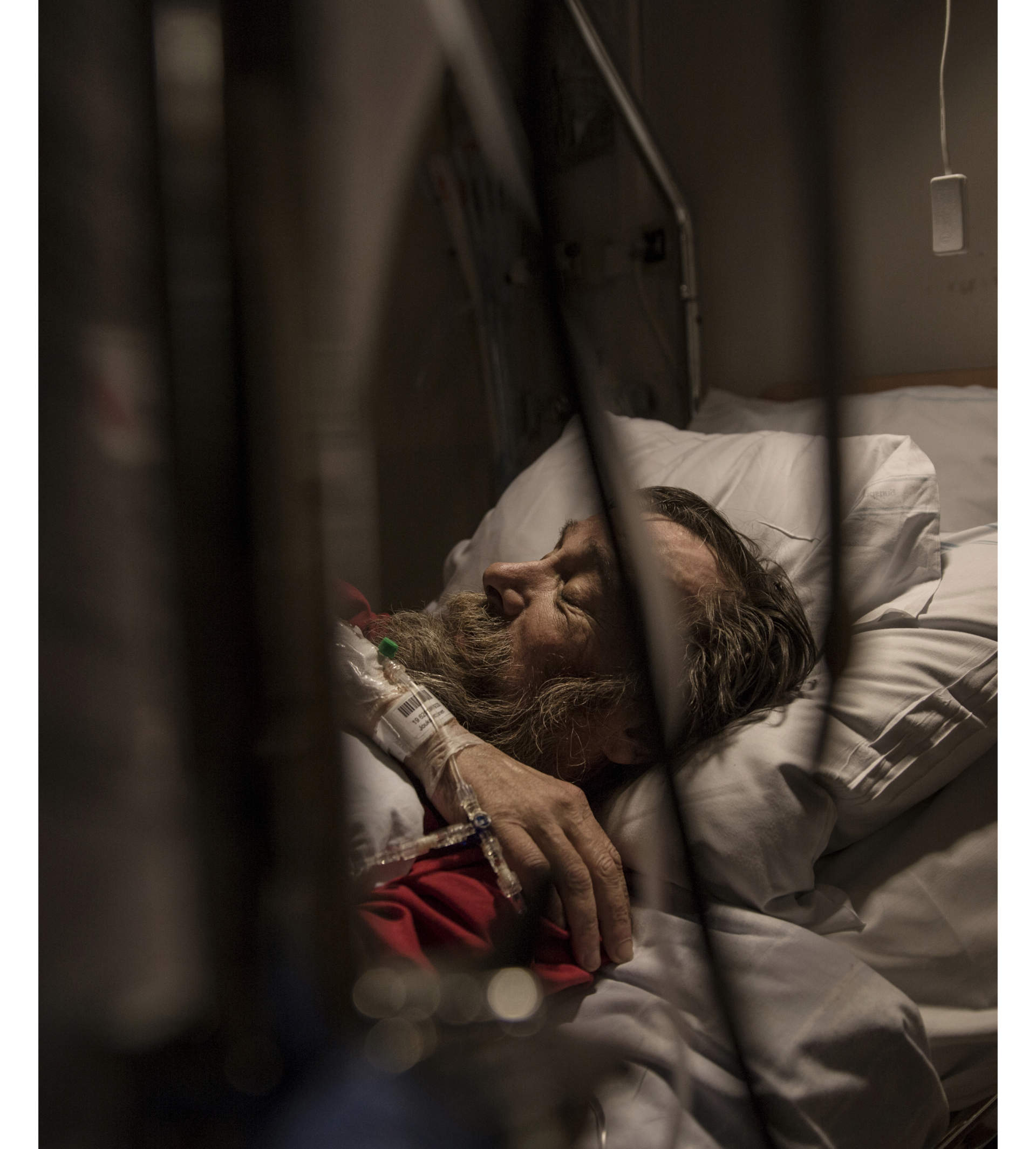

”I’m a stubborn Finnish old man”, Pekka used to say. But in the end, his poisoned body couldn’t take it anymore.
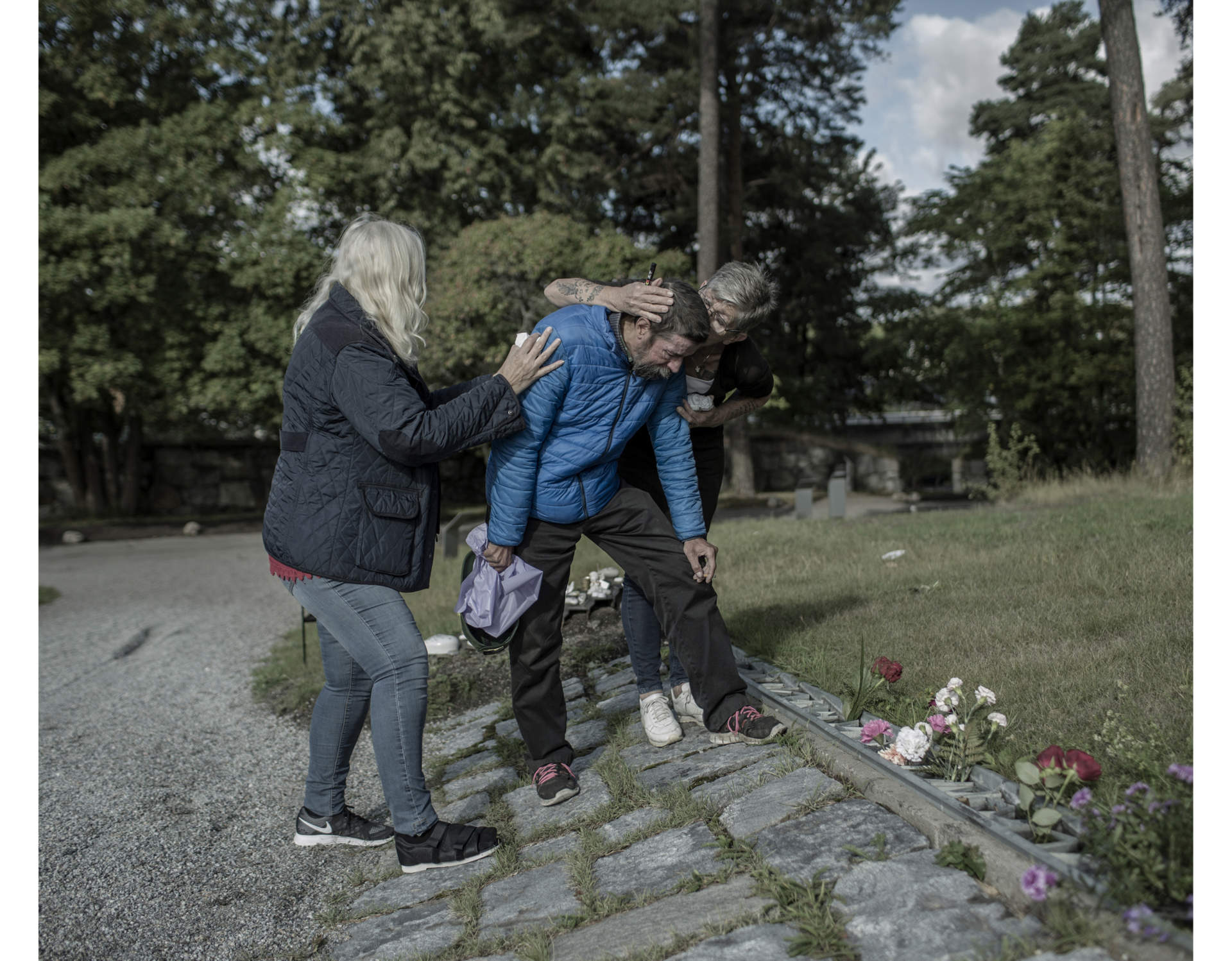

He didn’t have anyone else. When Pekka was buried in Sala Church, Matte could hardly stand upright. They met for the first time at Björns Trädgård in Stockholm, two homeless men who realized they needed each other to survive.
The first time Matte drank alcohol was when he was 13, according to himself. The poison clung to his body immediately, like it does to some, as did the want for more.
Numb and comforted. Broken dreams.
He steered his life on to a path he would never really stray from, except for some odd jobs here and there. Out of those, he prefers to talk about how he helped install the white facade on the Globe.
– 85 meters above ground, that was right where I belonged. Few people have seen this city both from above and from below the way I have.
Unlike Pekka he has never committed any serious crimes. The only conviction we can find is illegal purchase of alcohol and selling alcohol to minors. The punishment: a fine of 2 000 SEK.
Partner in crime: Jouko Jokinen.
Without any knowledge of one another, two boys grow up in the 60’s and 70’s in Sweden. Neither of them fit into the Swedish model. As adults, they would cut off all ties to their old lives and become each other’s families.
They have similar scars.
– We were brothers. I try not to think about him too much, but he’s always there. Sometimes I hear his voice and it makes me laugh.
In the spring of 2017, Pekka was an inpatient at Maria Regina, a home providing palliative care. But not even as he was facing death could he handle being locked up. He left the hospice like he’d left everything else in his life.
One last summer on the streets of Stockholm.
Pekka died on August 20.
There’s one receipt in his estate.
2017-08-17
The bar at Viking Line
465 kronor.
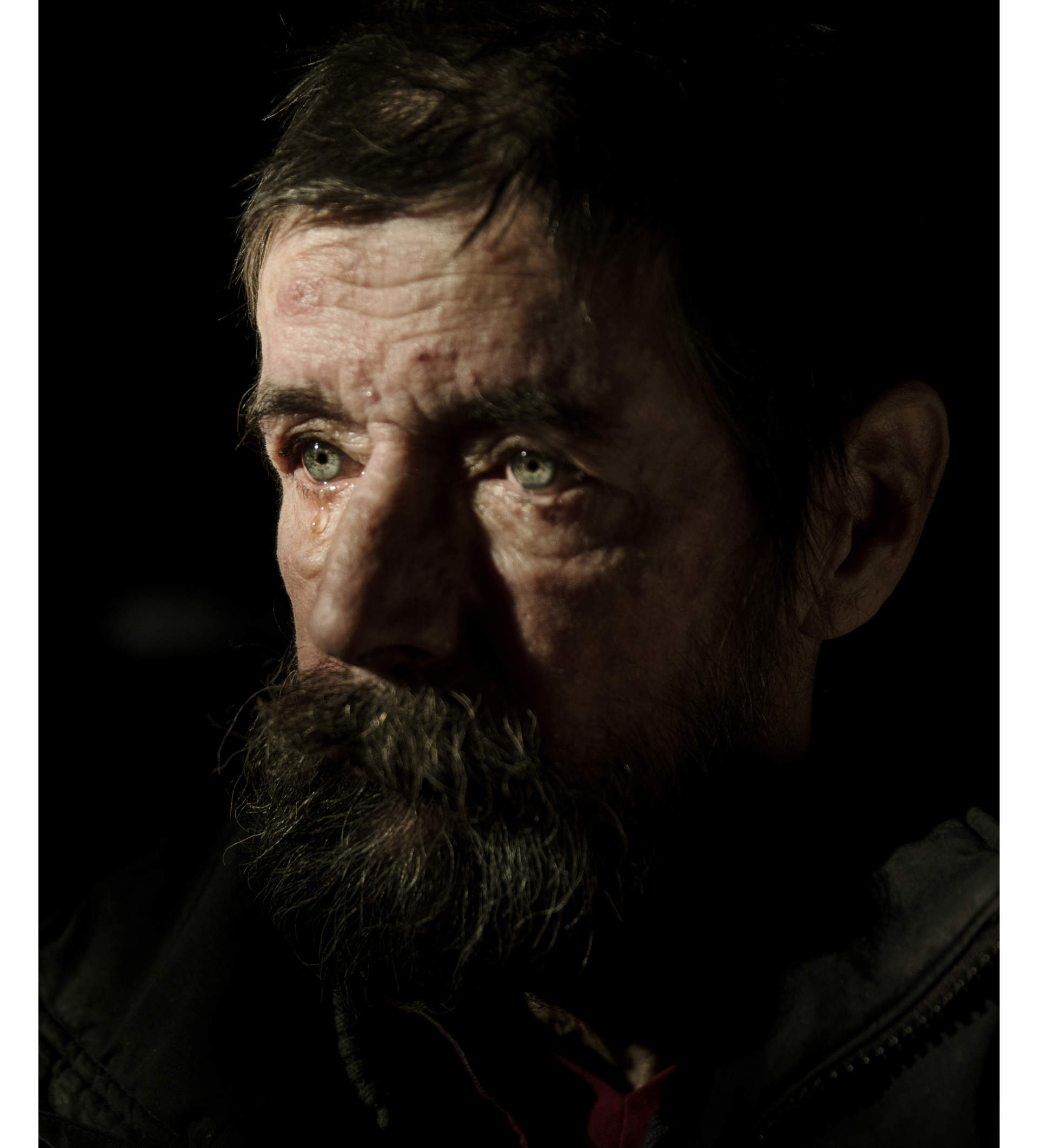

The feeling of loss and loneliness.
Fotnot: Erik Wiman och Magnus Wennman har följt Pekka och Matte i 10 år.
